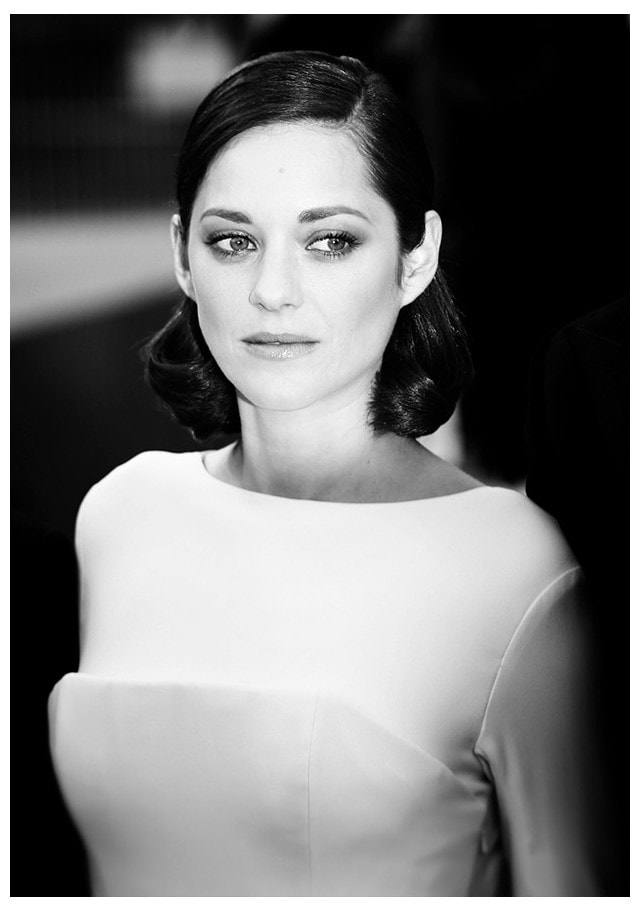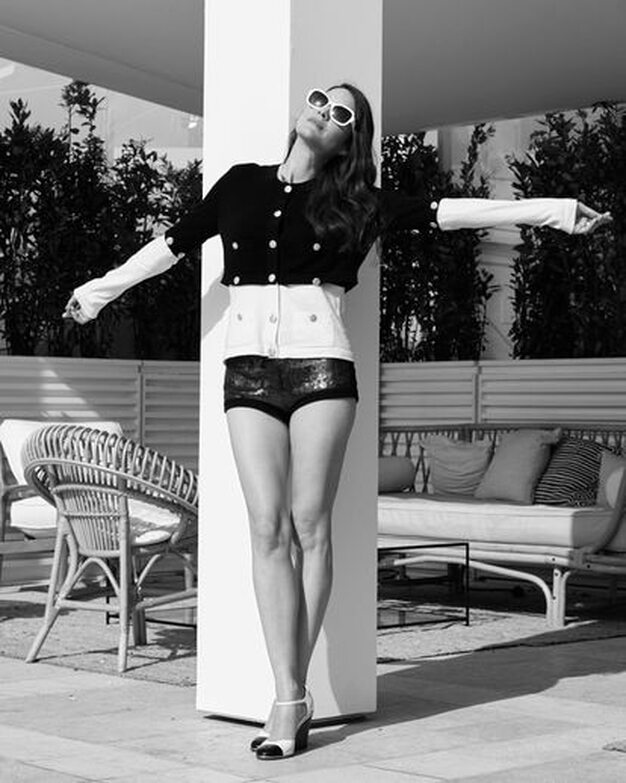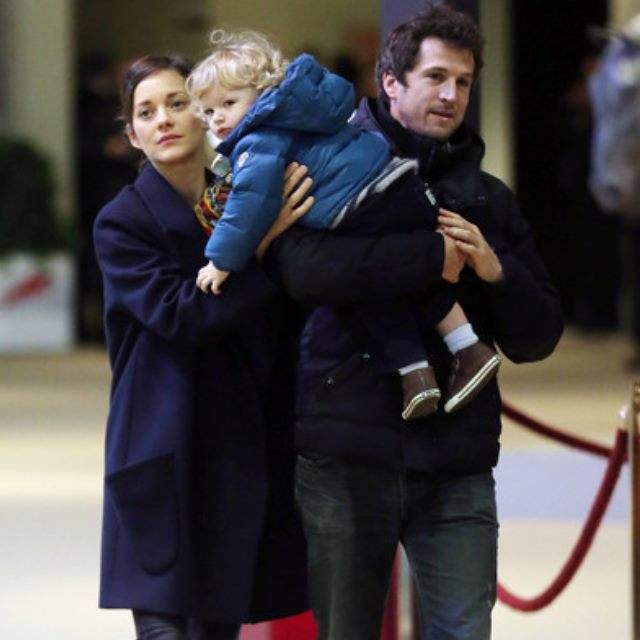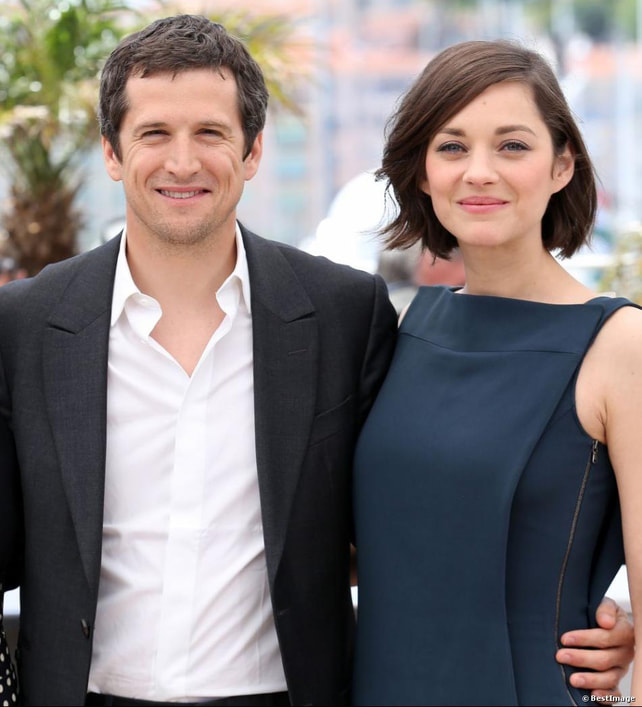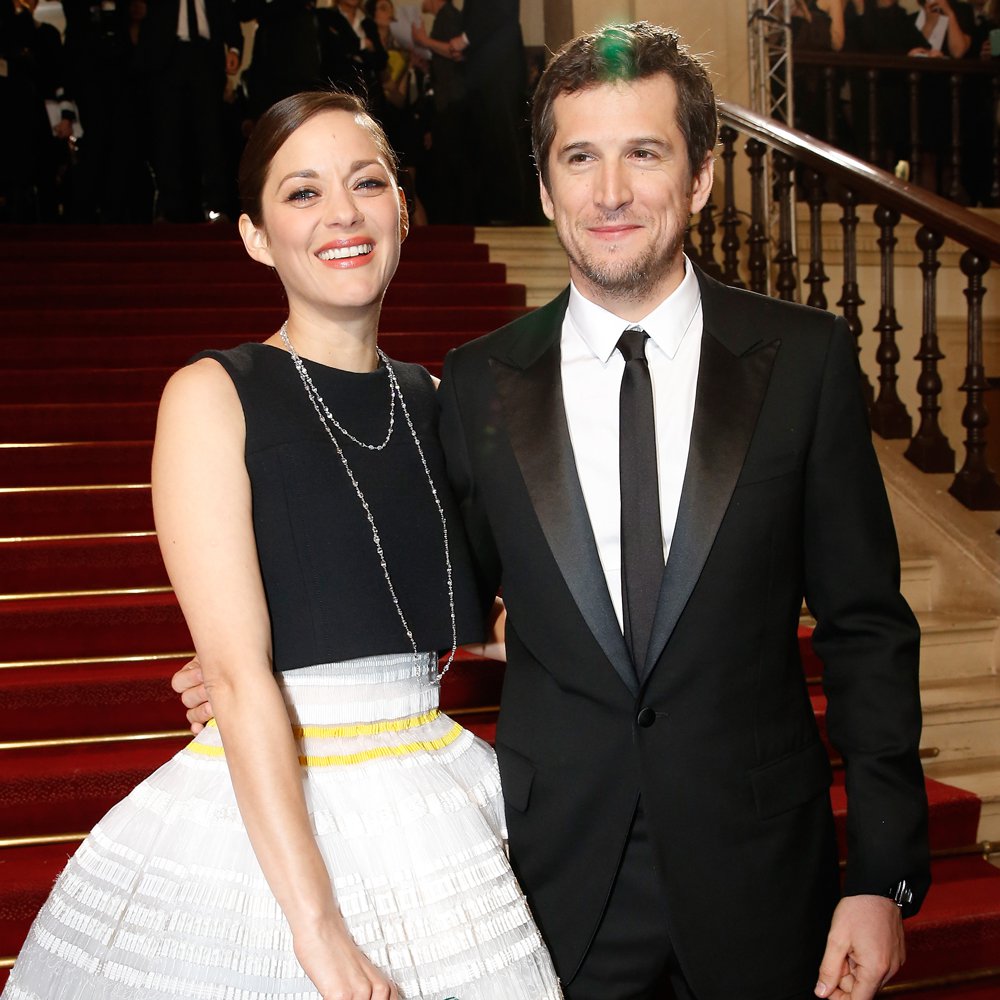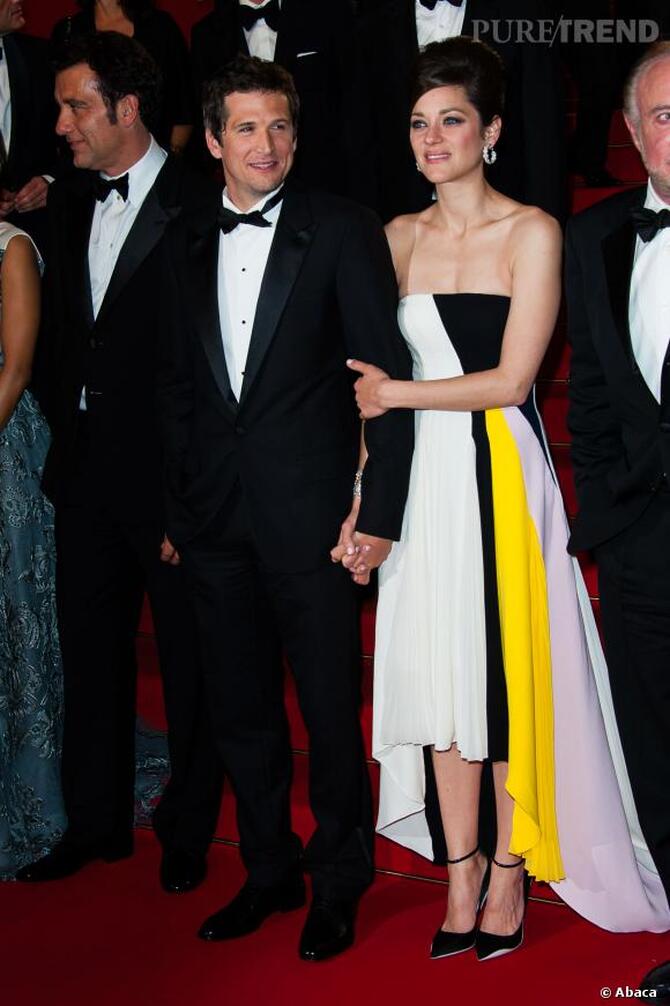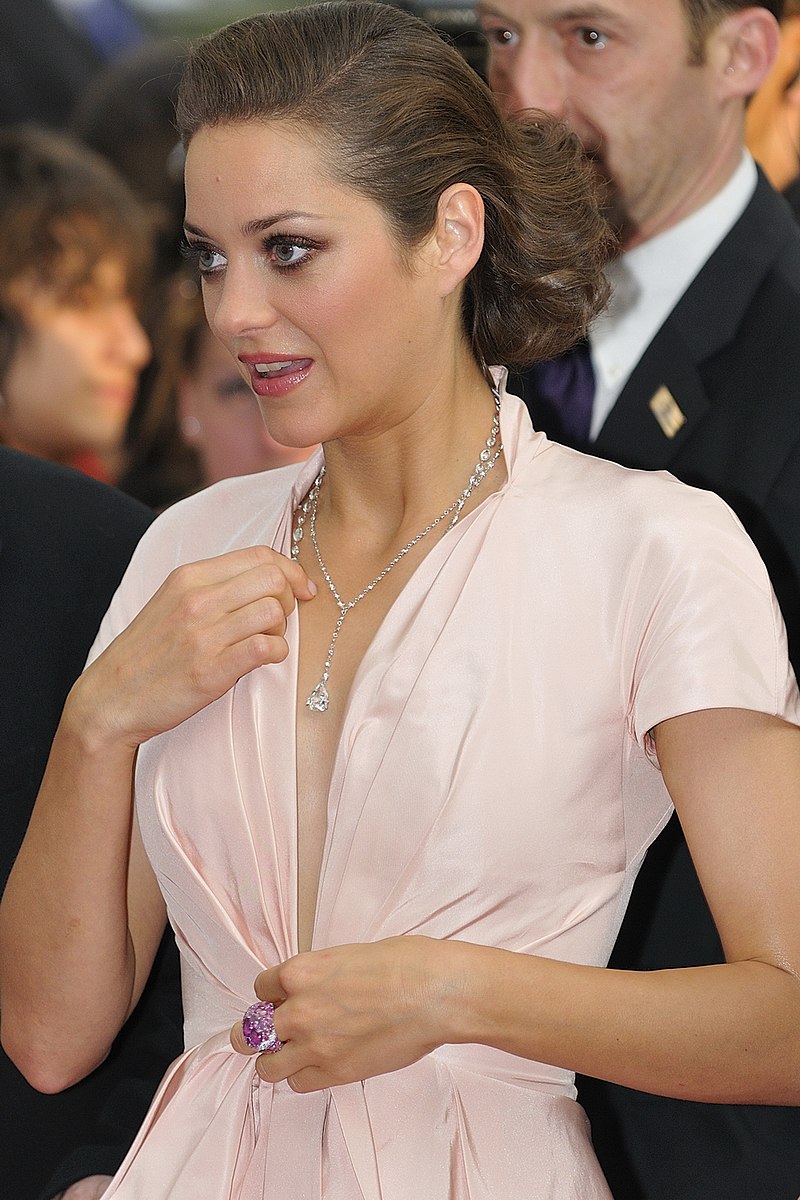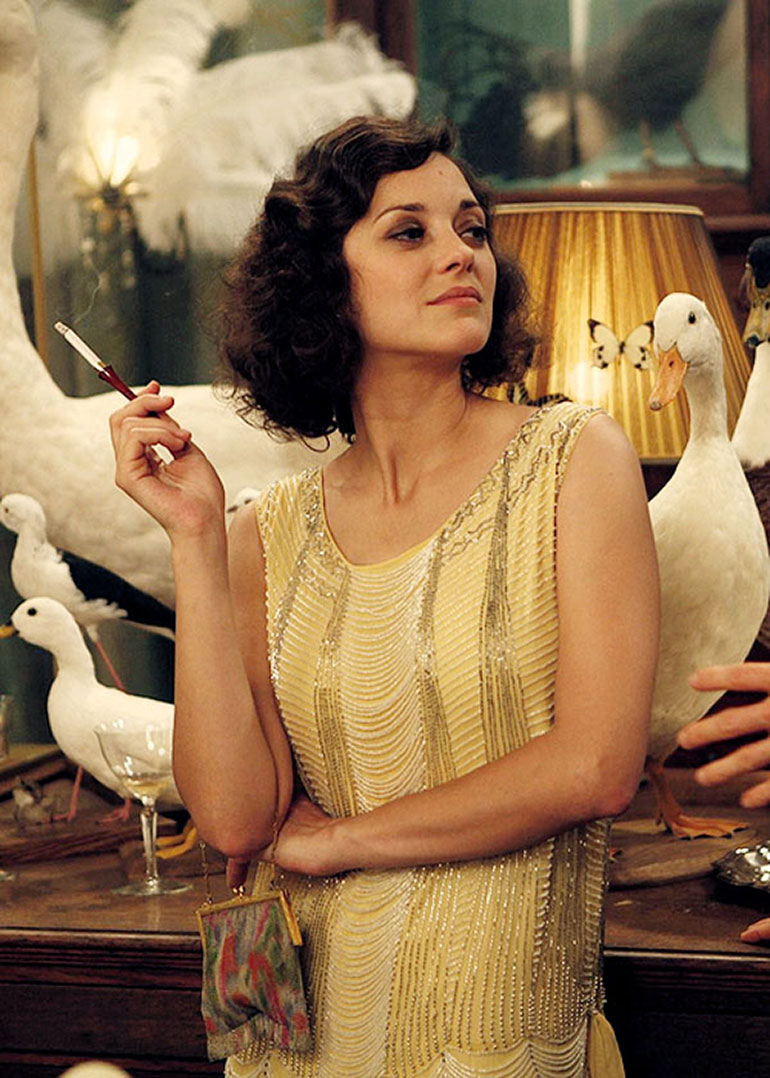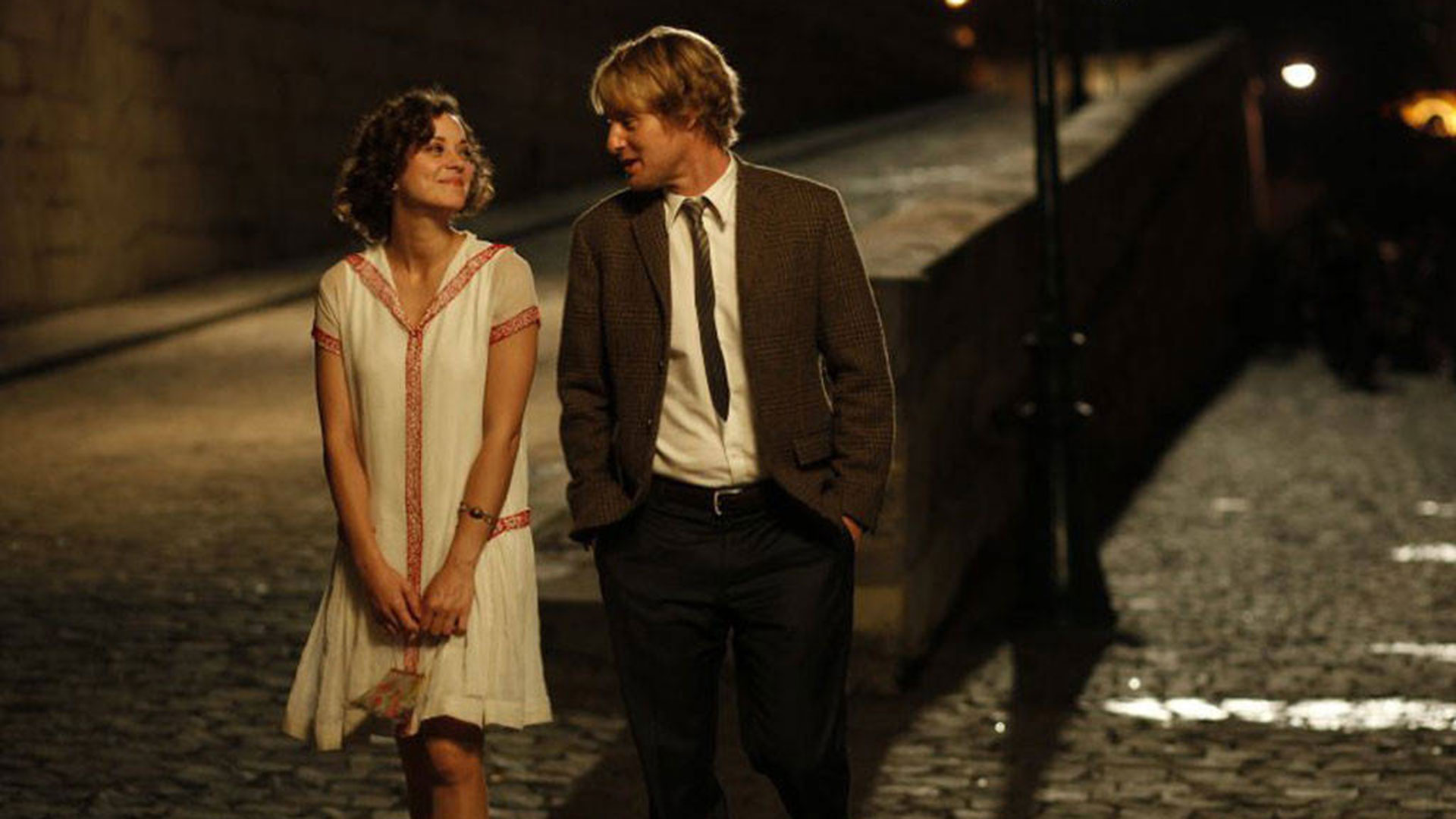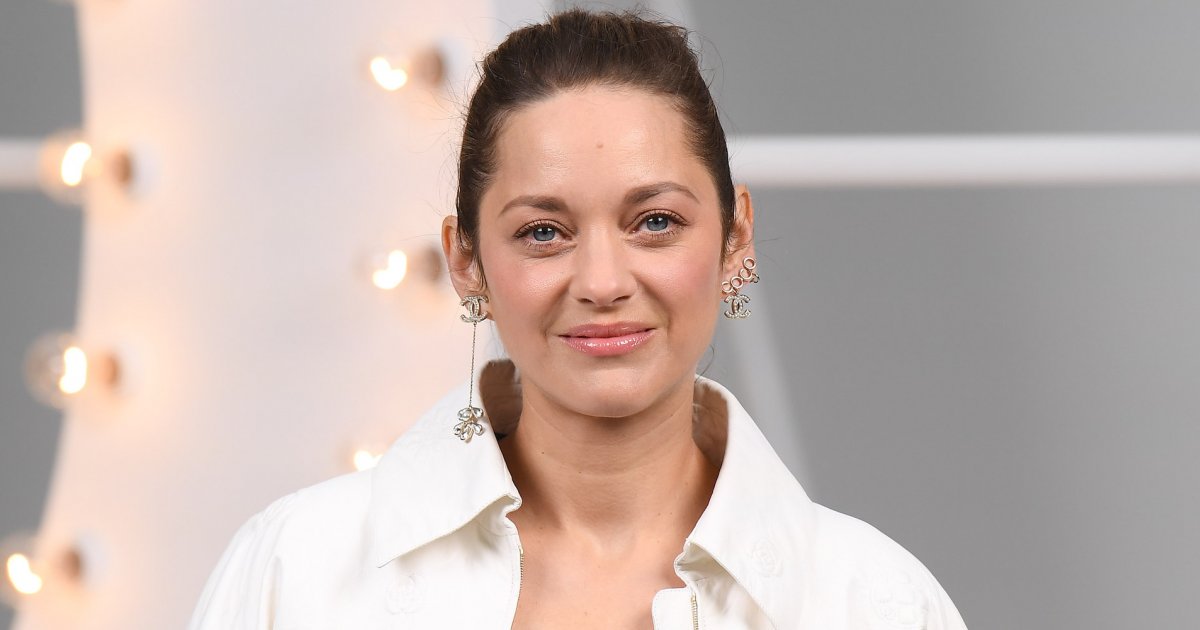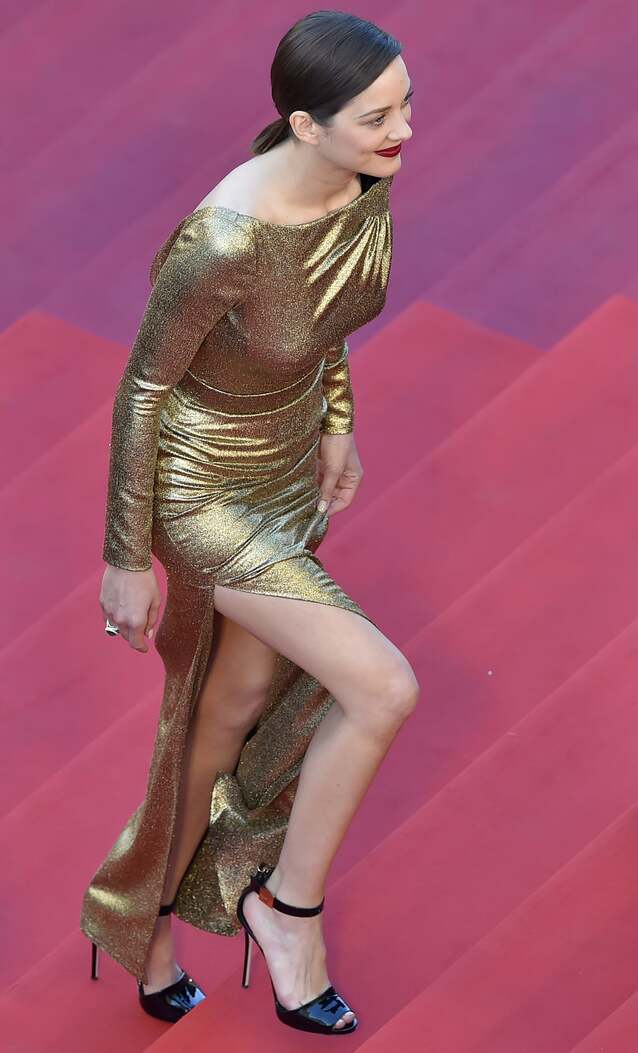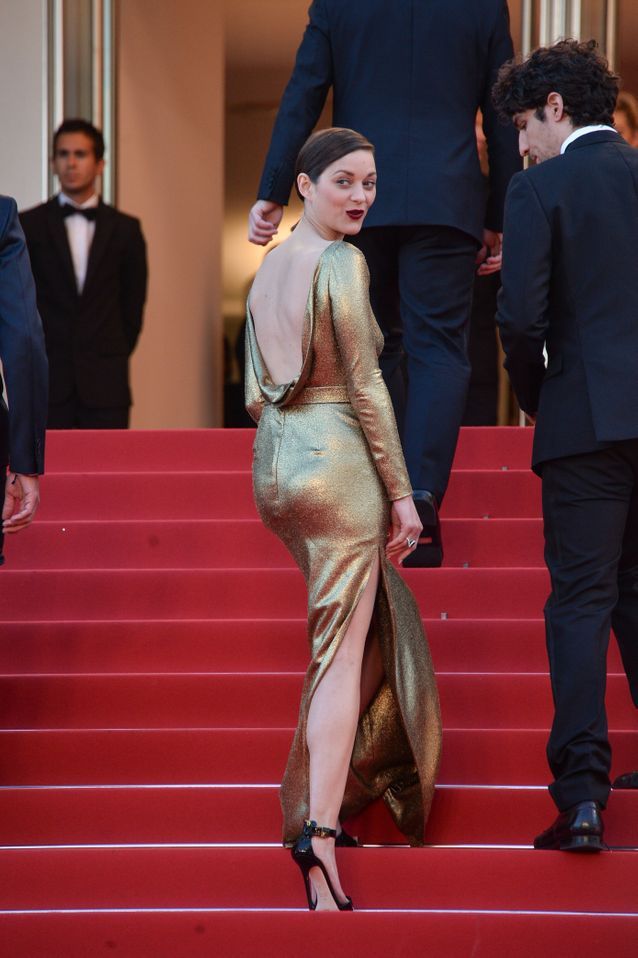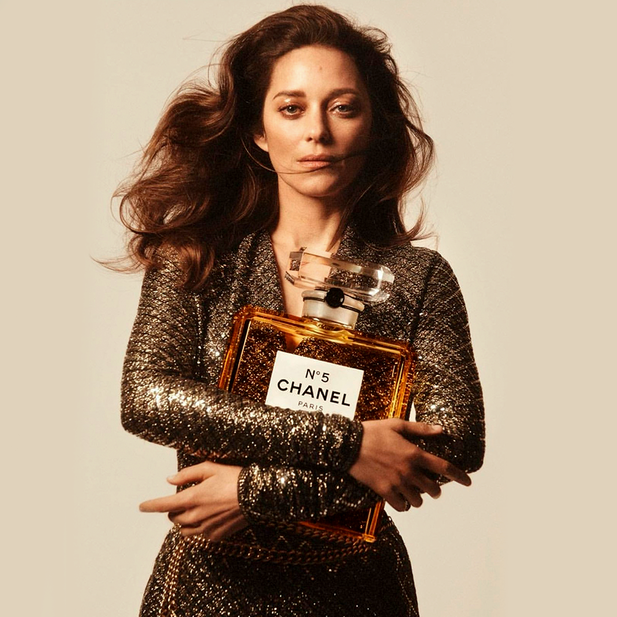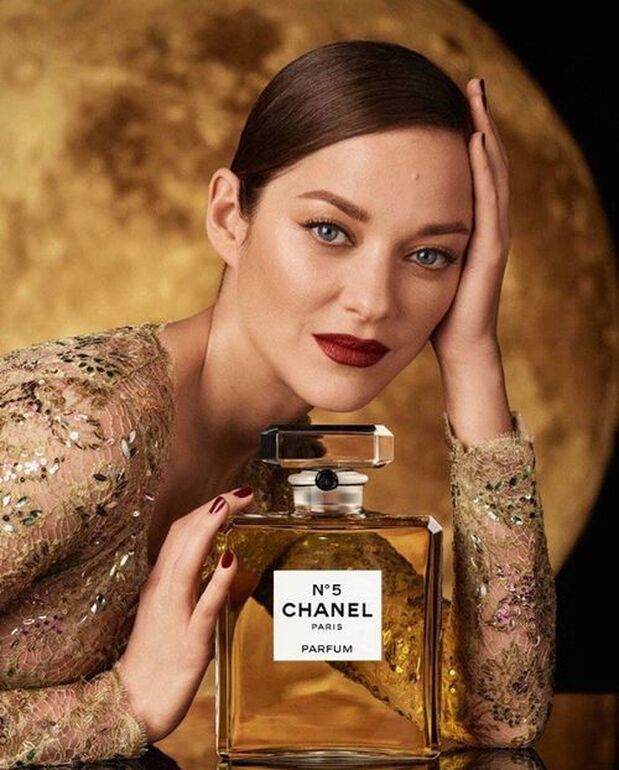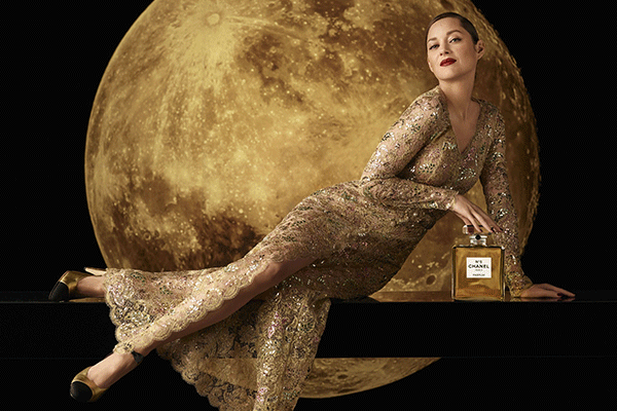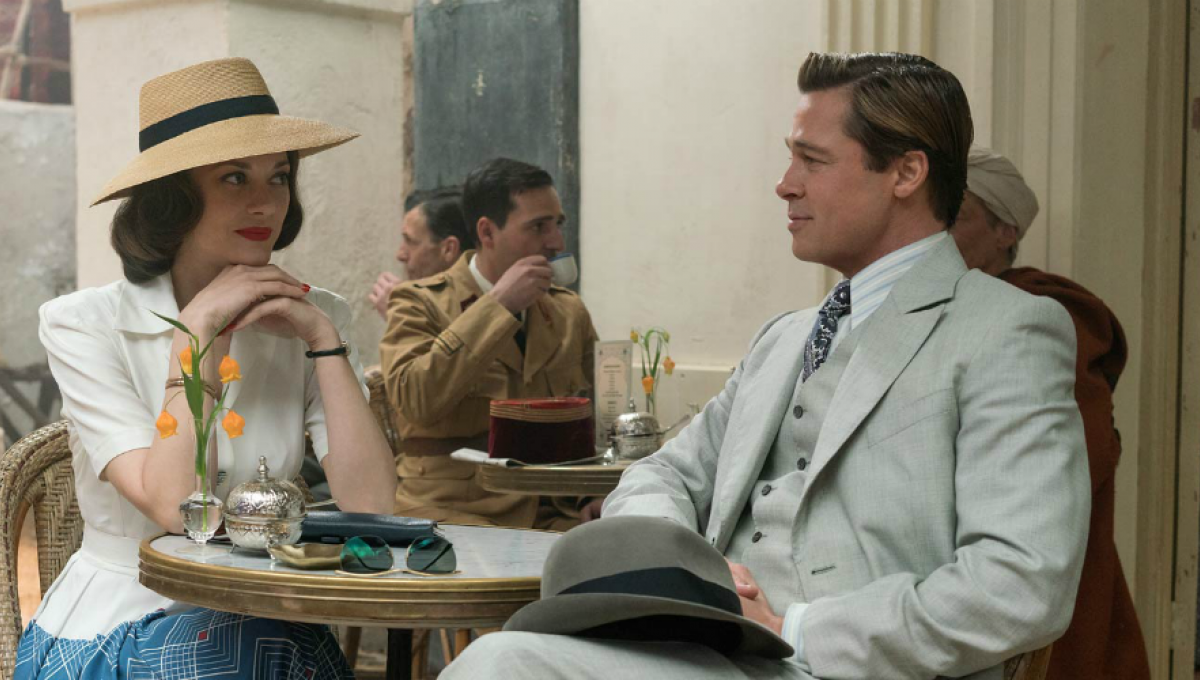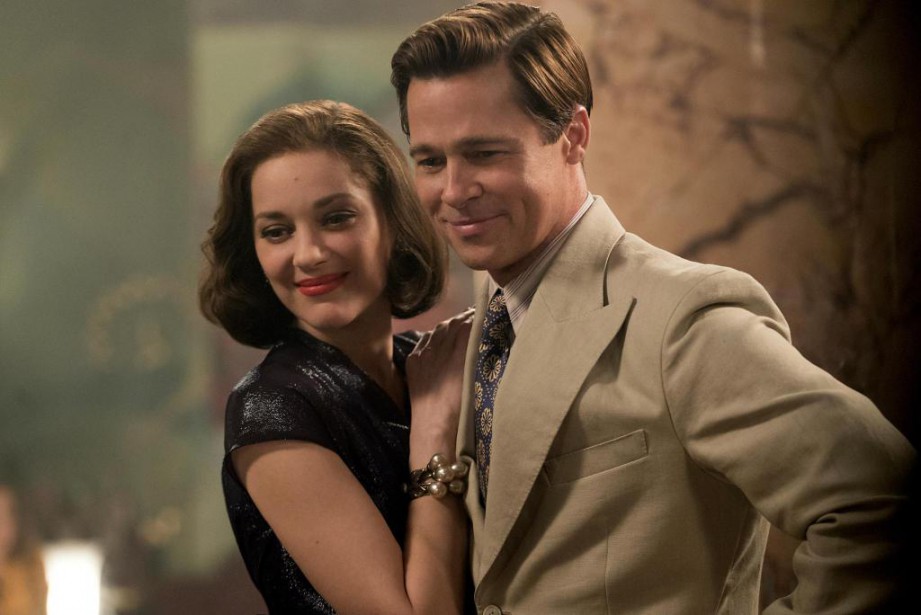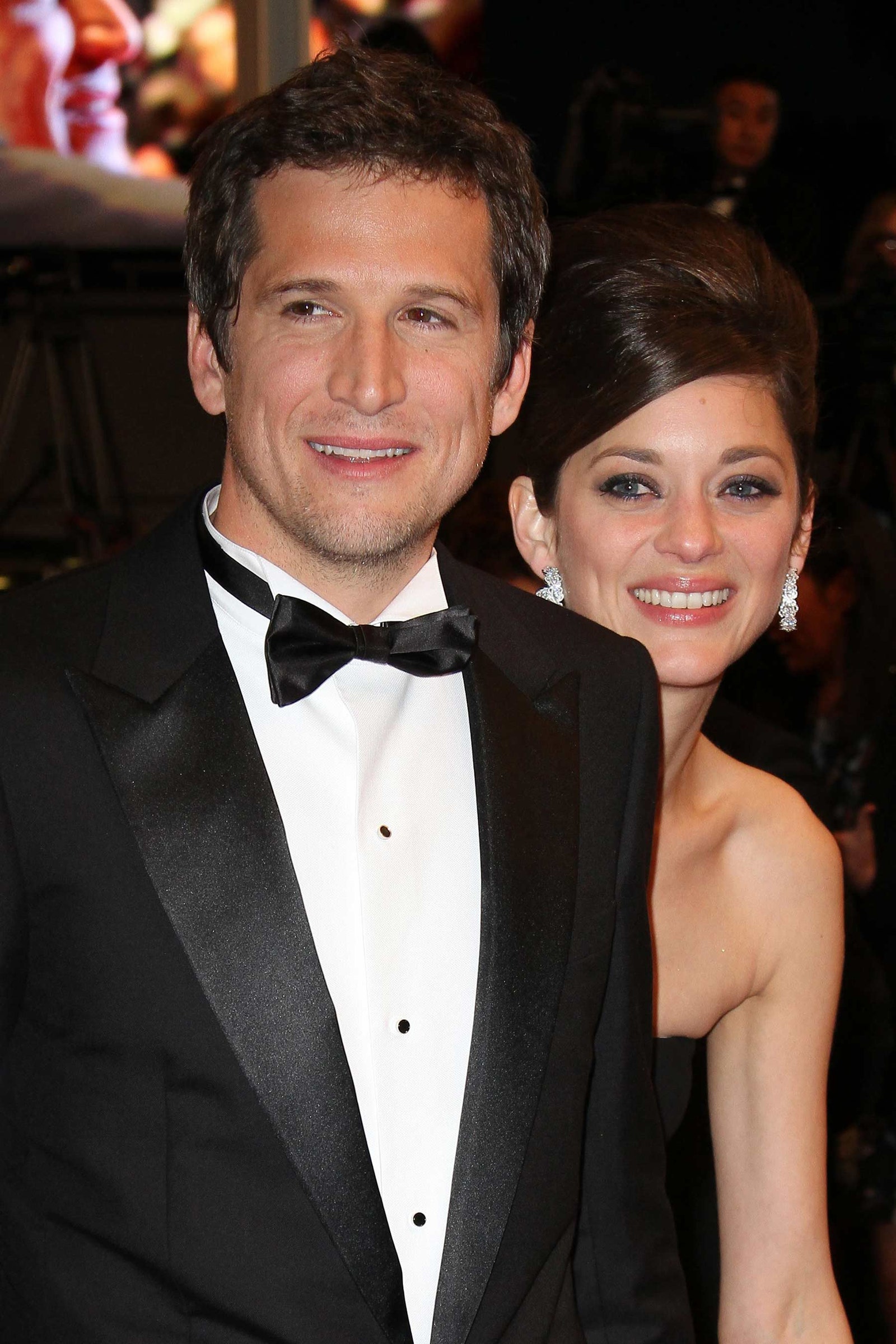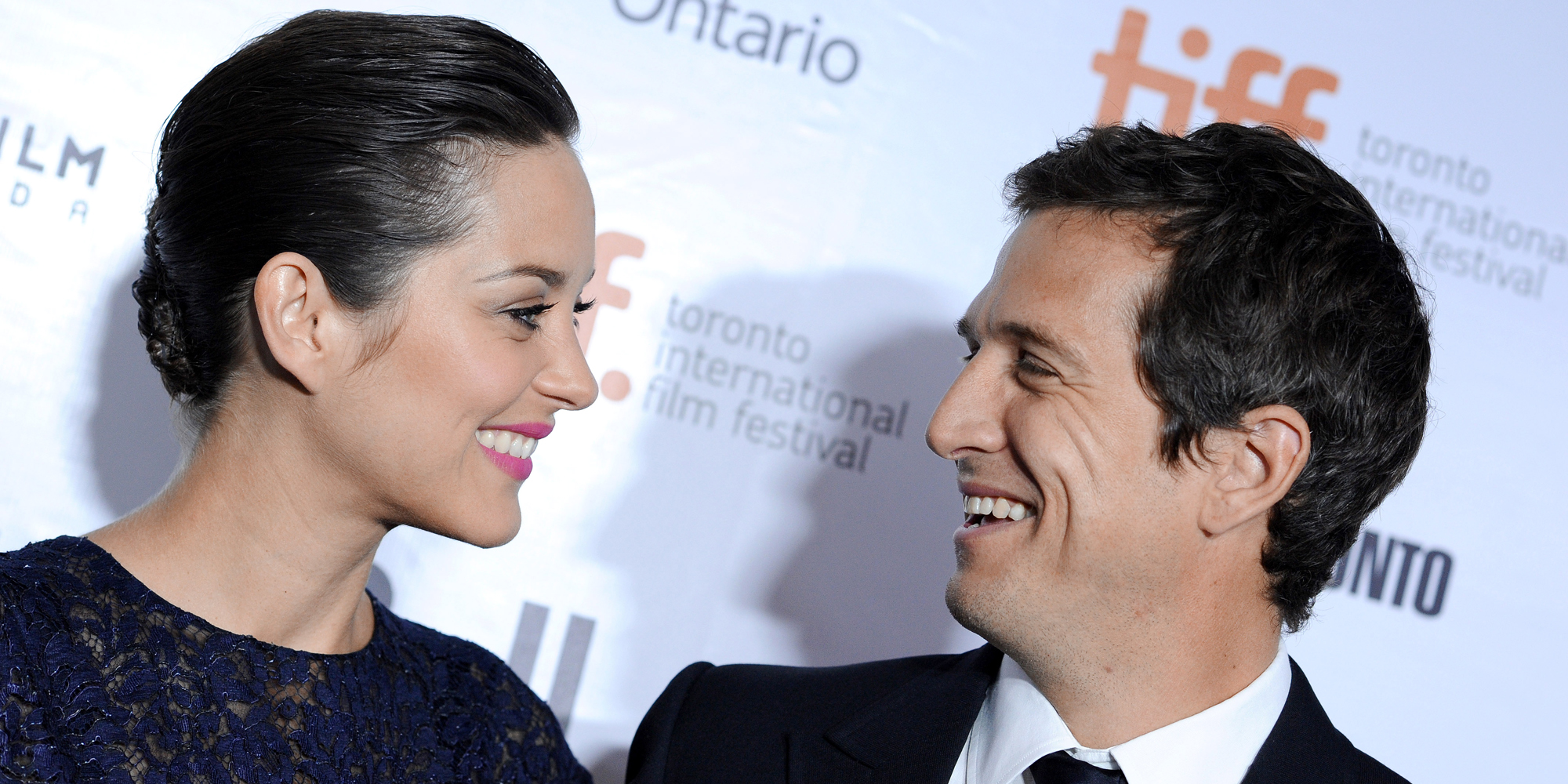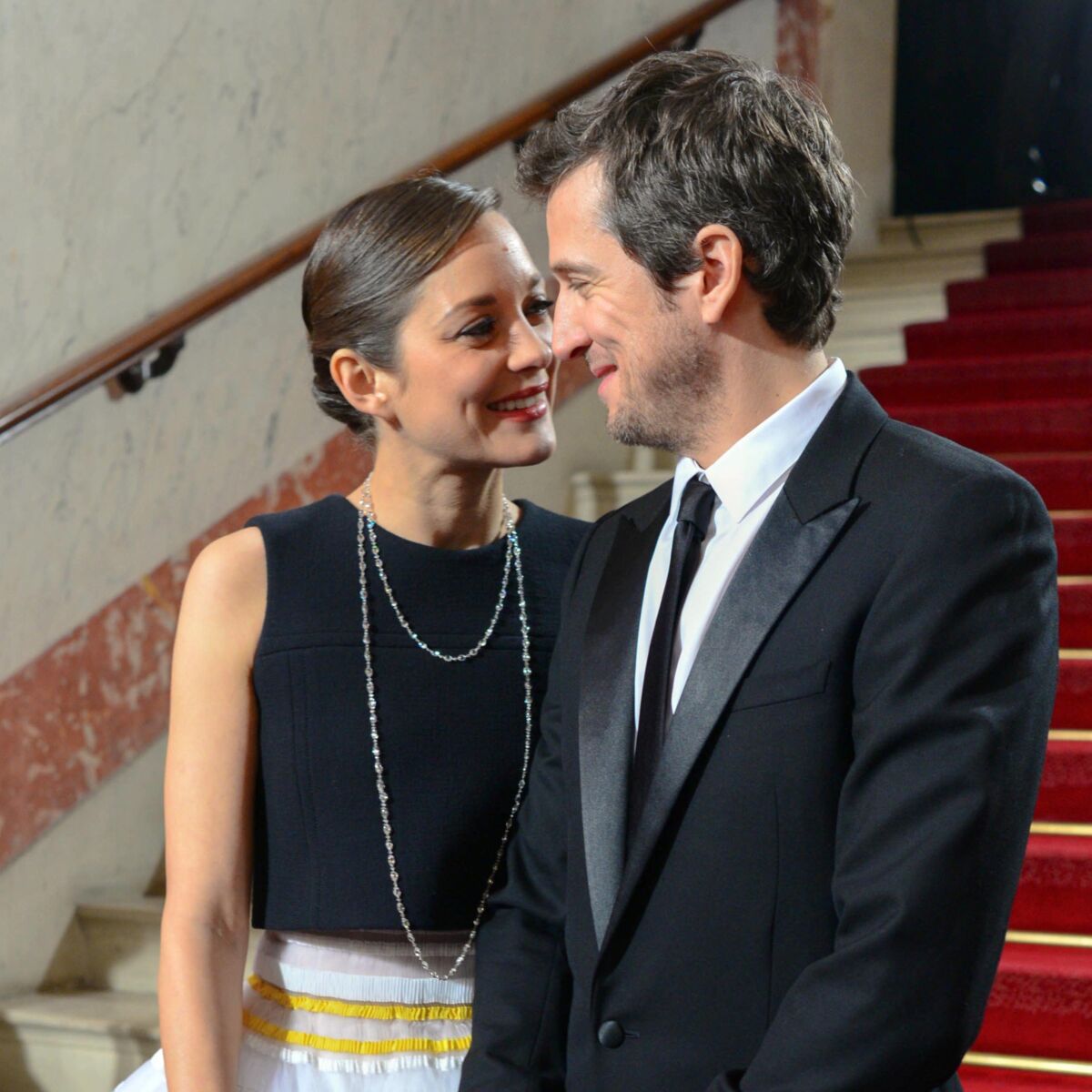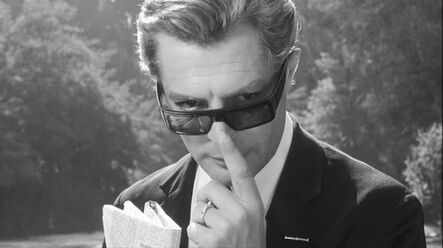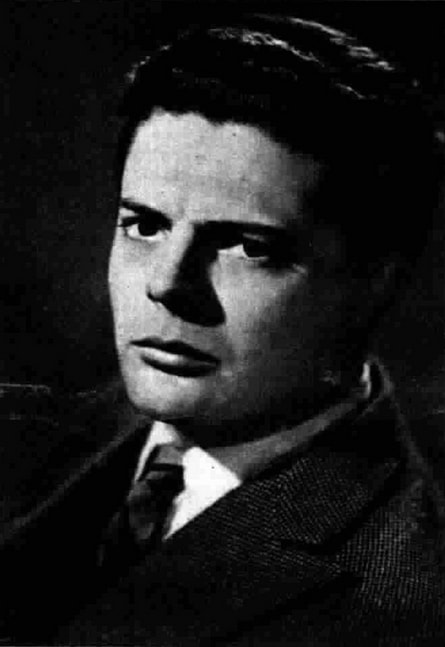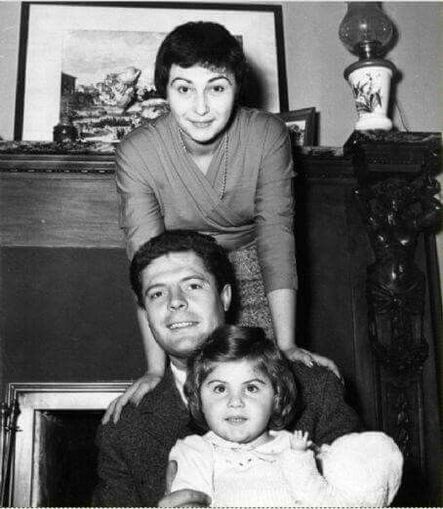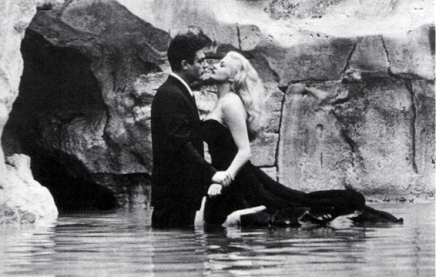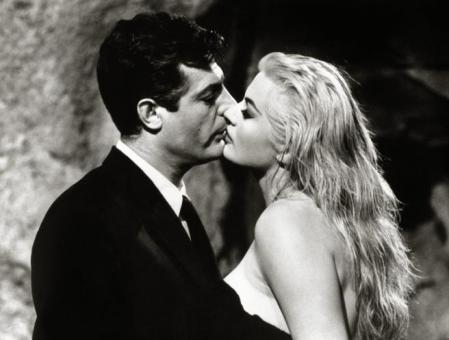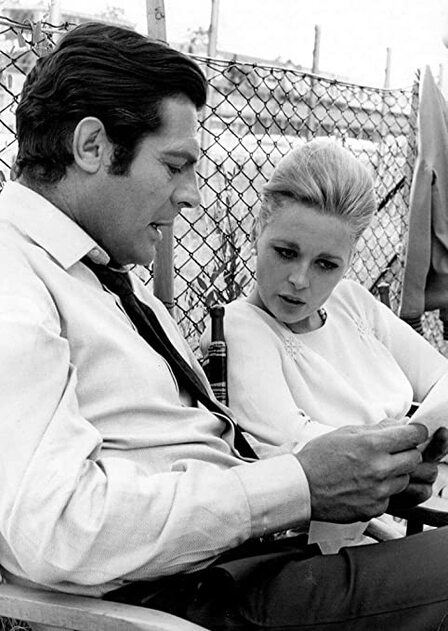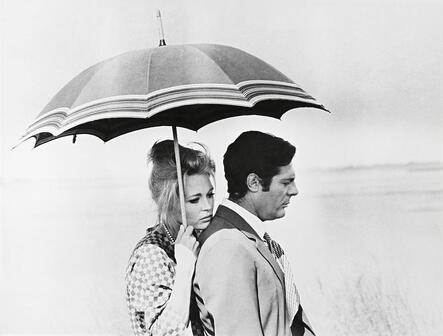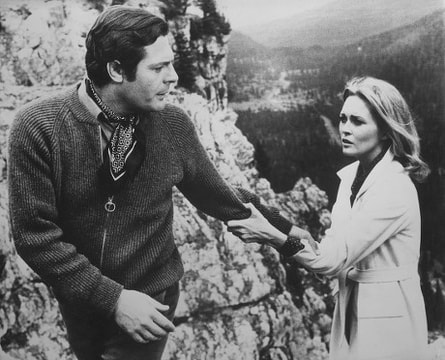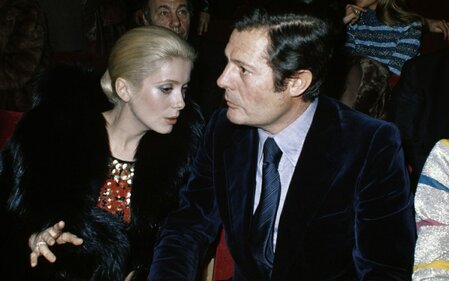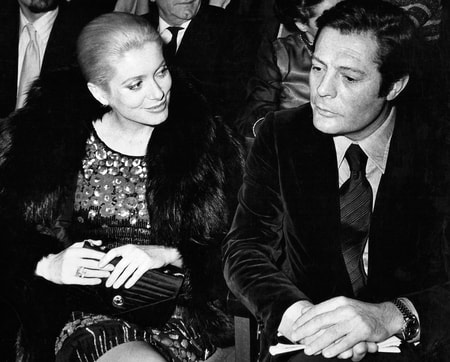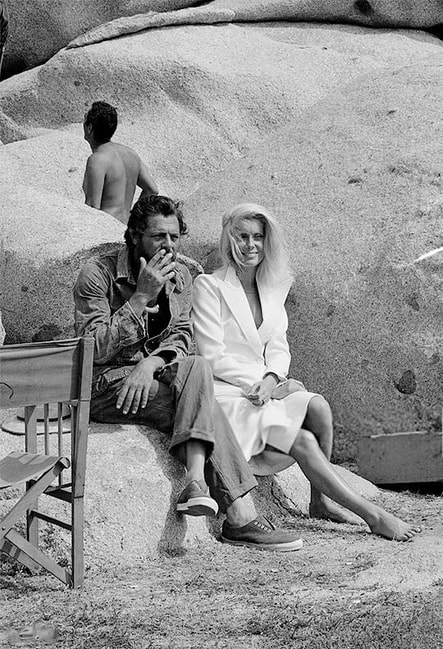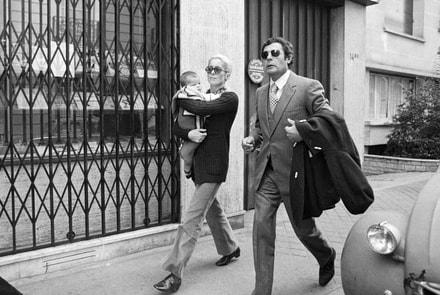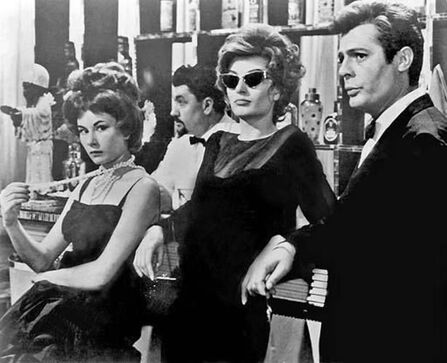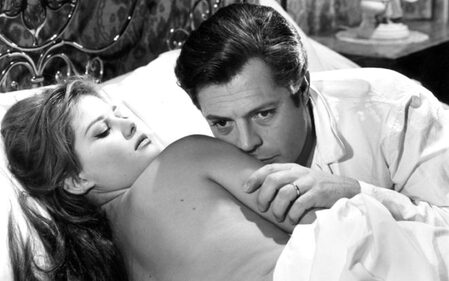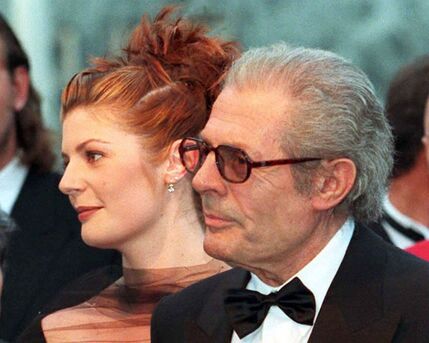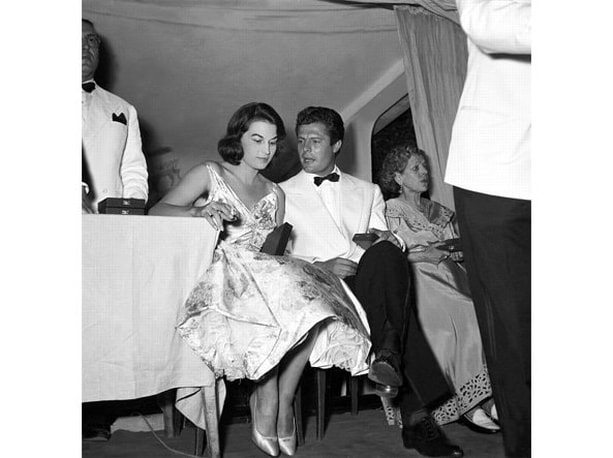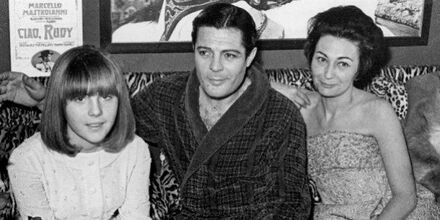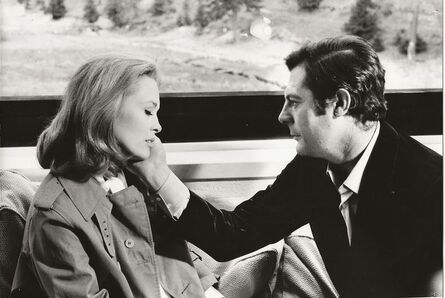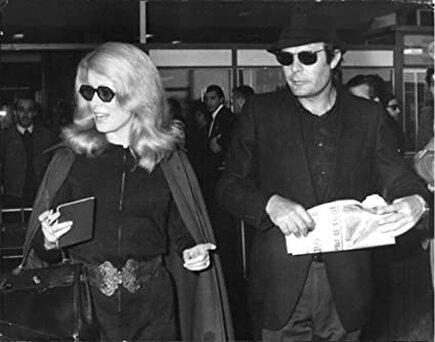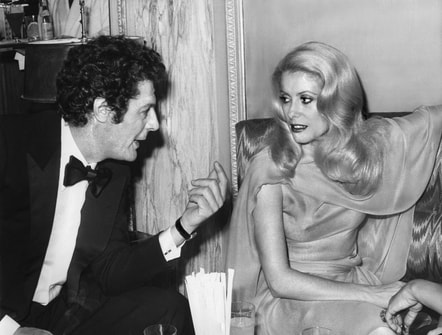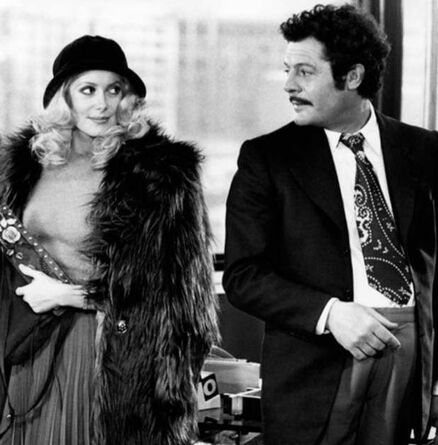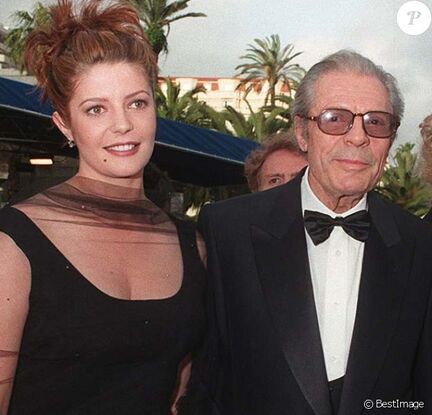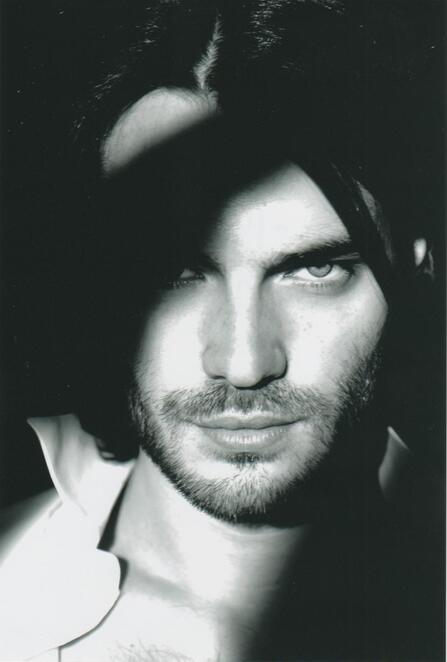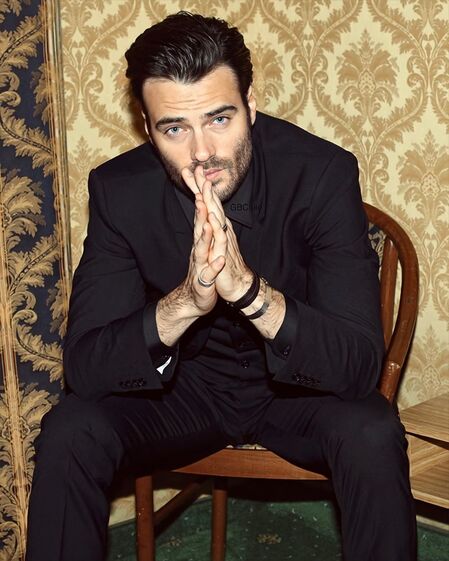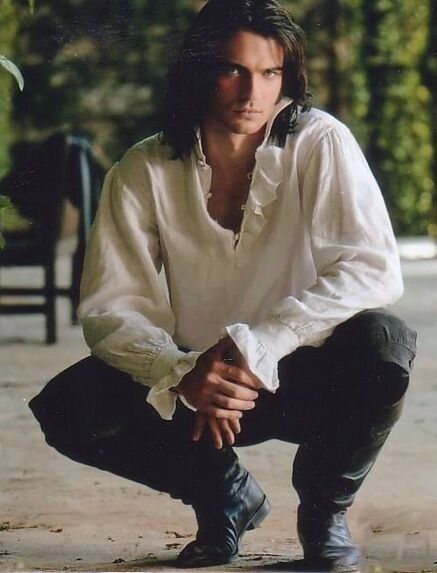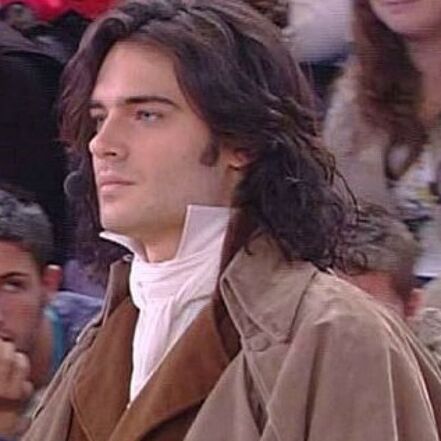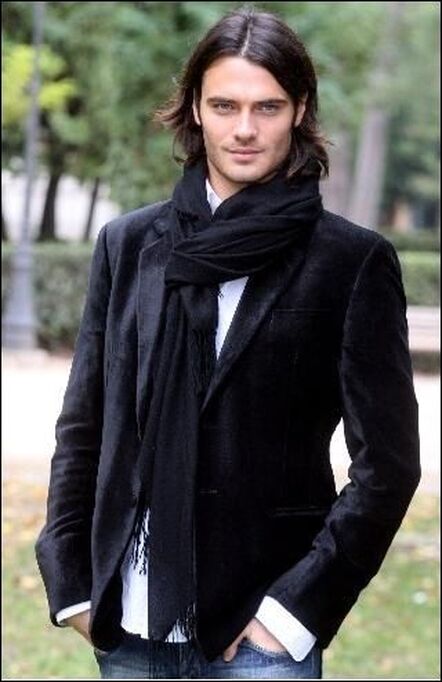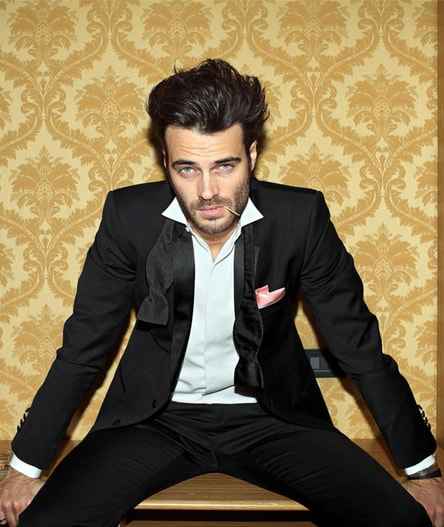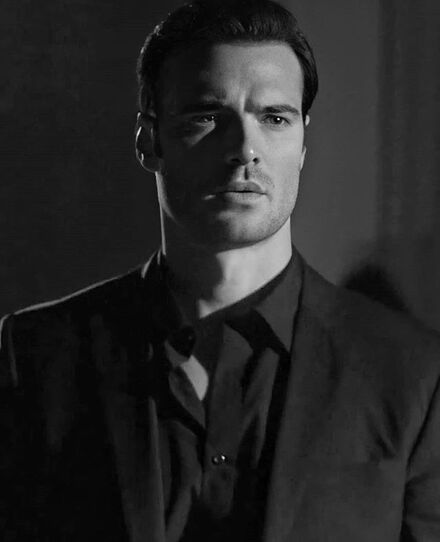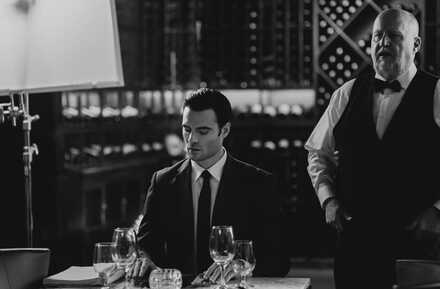|
Marion Cotillard (born 30 September 1975) is a French actress, film producer, singer, and environmentalist. Known for her roles in independent films and blockbusters, she has received various accolades, including an Academy Award, a British Academy Film Award, a Golden Globe Award, a European Film Award, a Lumières Award, and two César Awards. She became a Knight of the Order of Arts and Letters in France in 2010, and was promoted to Officer in 2016. She has served as a spokeswoman for Greenpeace since 2001. Cotillard was the face of the Lady Dior handbag for nine years. Since 2020, she is the face of Chanel's fragrance Chanel No. 5. Cotillard had her first English-language role in the television series Highlander (1993), and made her film debut in The Story of a Boy Who Wanted to Be Kissed (1994). Her breakthrough came in the successful French film Taxi (1998), which earned her a César Award nomination. She made the transition into Hollywood in Tim Burton's Big Fish (2003), and won her first César Award for her performance in Jean-Pierre Jeunet's A Very Long Engagement (2004). For her portrayal of French singer Édith Piaf in La Vie en Rose (2007), Cotillard won her second César Award, a BAFTA Award, a Golden Globe Award, a Lumières Award and the Academy Award for Best Actress, becoming the first and (as of 2022) only actor to win an Academy Award for a French-language performance, and also the second actress to have won this award for a foreign language performance. Her performances in Nine (2009), Rust and Bone (2012), and Annette (2021) earned Cotillard three more Golden Globe nominations. For Two Days, One Night (2014), she received a second Academy Award nomination for Best Actress, which was also her second nomination for a French-language film. Cotillard is one of only seven actors to receive multiple Academy Award nominations for foreign language performances. Her English-language films include Public Enemies (2009), Inception (2010), Contagion (2011), Midnight in Paris(2011), The Dark Knight Rises (2012), The Immigrant (2013), Macbeth (2015), and Allied (2016). Marion Cotillard est une actrice et productrice française née le 30 septembre 1975 à Paris. Active au cinéma depuis la fin des années 1990, elle est révélée au grand public par son rôle de compagne du héros dans la saga Taxi, qu'elle incarne dans les trois premiers films de la franchise. En février 2005, elle reçoit la première des grandes récompenses qui vont jalonner sa carrière : le César de la meilleure actrice dans un second rôle, pour seulement huit minutes de présence à l'écran dans le film Un long dimanche de fiançailles de Jean-Pierre Jeunet. En 2008, c'est la consécration internationale : son interprétation de la chanteuse Édith Piaf dans le film biographique La Môme d'Olivier Dahan lui attire de nombreuses récompenses, dont le César, le Golden Globe, le BAFTA et l'Oscar de la meilleure actrice. Elle devient notamment la première Française à être désignée « meilleure actrice » par l'Académie des arts et des sciences du cinéma pour un film tourné en langue française, et seulement la deuxième actrice à gagner ce prix pour un rôle parlé dans une langue étrangère. Ce triomphe critique l'accompagne également dans les années 2010 pour ses interprétations dans les films De rouille et d'os, The Immigrant, Deux Jours, une nuit et Macbeth, et consacre une carrière internationale aux choix artistiques variés, la menant à plusieurs reprises au Festival de Cannes. BiographyMarion Cotillard was born on 30 September 1975 in Paris and grew up around Orléans in an artistically inclined household. Her father, Jean-Claude Cotillard, is an actor, teacher, former mime, and theatre director, of Breton descent. Cotillard's mother, Monique Niseema Theillaud, is an actress and drama teacher of Algerian Kabyle background. She has two younger twin brothers, Quentin and Guillaume. Cotillard's father introduced her to cinema, and as a child she would mimic Louise Brooks and Greta Garbo in her own bedroom. She began acting during her childhood, appearing in one of her father's plays. At the age of 15, Cotillard entered the Conservatoire d'art dramatique in Orléans. She graduated in 1994 and then moved to Paris to pursue an acting career. After small appearances and performances in theatre, Cotillard had occasional, minor roles in television series such as Highlander—where she had her first English-speaking role aged 17. Her career as a film actress began in the mid-1990s, with minor roles in Philippe Harel's The Story of a Boy Who Wanted to Be Kissed (1994), which was her feature film debut at the age of 18, and in Arnaud Desplechin's My Sex Life... or How I Got into an Argument, and Coline Serreau's La Belle Verte (both 1996). Also in 1996, Cotillard had her first leading role in the television film Chloé, directed by Dennis Berry, with Cotillard starring as a teenage runaway who is forced into prostitution. In 1998, she appeared in Gérard Pirès' action comedy Taxi, playing Lilly Bertineau, the girlfriend of delivery boy Daniel, played by Samy Naceri. The film was a hit in France and Cotillard was nominated for a César Award for Most Promising Actress. She reprised the role in Taxi 2 (2000) and Taxi 3 (2003). Cotillard started the transition into Hollywood when she obtained a supporting role in Tim Burton's 2003 film Big Fish playing Joséphine, the French wife of Billy Crudup's character, William Bloom. Big Fish was a critical and commercial success. That same year, he also starred in the French romantic comedy film Love Me If You Dare (Jeux d'enfants) opposite French actor Guillaume Canet, as Sophie Kowalsky, the daughter of Polish immigrants. The film was directed by Yann Samuel and was a box office hit in France with over 1 million tickets sold. In 2004, she won the Chopard Trophy of Female Revelation at the Cannes Film Festival. In May 2005, Cotillard portrayed Joan of Arc for the first time in the Orléans Symphonic Orchestra's production of Arthur Honegger's oratorio Joan of Arc at the Stake at the Palais des Sports d'Orléans, in Orléans, France. She reprised the role several times when performing the oratorio in different countries in the following years. In 2006, the actress took on significant roles in four feature films, including Ridley Scott's romantic dramedy A Good Year, in which she portrayed Fanny Chenal, a French café owner in a small Provençal town, opposite Russell Crowe as a Londoner who inherits a local property. Marion Cotillard was chosen by director Olivier Dahan to portray the French singer Édith Piaf in the biopic La Vie en Rose, before he had even met her, saying that he noticed a similarity between Piaf's and Cotillard's eyes. The film was dubbed "the most awaited film of 2007" in France, where some critics said that Cotillard had reincarnated Édith Piaf to sing one last time on stage. At the Berlin International Film Festival, where the film premiered, Cotillard was given a 15-minute standing ovation. Hollywood talent agent, Hylda Queally, signed Cotillard shortly after its premiere at the festival. La Vie en Rose was a box office hit in France, gathering over 5 million admissions, and made US$86 million worldwide on a US$25 million budget. Cotillard is the first actress to win a Golden Globe for a foreign language performance since 1972. She is also the first person to win a Golden Globe for a foreign language performance. Since October 2007, Cotillard has been in a relationship with French actor and director Guillaume Canet. They had been friends since 1997, and co-starred together for the first time years later in the 2003 film Love Me If You Dare. In 2011, they had their first child, a son, Marcel, and in 2017, their second child, a daughter, Louise was born. On 10 February 2008, Cotillard became the first French actress to be awarded the BAFTA Award for Best Actress in a Leading Role since Stéphane Audran in 1973. At the Academy Awards, she won Best Actress, becoming the first woman and second person (after Adrien Brody, The Pianist) to win both a César and an Oscar for the same performance. Cotillard is also the second French actress to win this award and the third overall to win an Academy Award after Simone Signoret in 1960 and Juliette Binoche in 1997. She is the first Best Actress winner for a non-English language performance since Sophia Loren in 1961. She is also the first and (as of 2020) only winner of an Academy Award for a French-language performance. On 24 June 2008, Cotillard was one of 105 individuals invited to join the Academy of Motion Picture Arts and Sciences. In 2009, Cotillard starred in the film adaptation of the musical Nine, directed by Rob Marshall, playing Luisa Contini, the wife of Guido, played by Daniel Day-Lewis. Time magazine ranked Cotillard's performance in Nine as the fifth best female performance of 2009, and she was nominated for a Golden Globe for Best Actress in a Motion Picture – Musical or Comedy for her performance in Nine. Cotillard appeared on the cover of the November 2009 issue of Vogue with her Nine co-stars, and on the July 2010 cover by herself. On 27 February 2010, Cotillard was the Honorary President of the 35th César Awards ceremony. In the same year, she played Mal Cobb, a projection of Leonardo DiCaprio's character, Dom Cobb's deceased wife in Inception, directed by Christopher Nolan. Cotillard and Leonardo DiCaprio ranked No. 8 on Forbes's list of "Hollywood's Top Earning On-Screen Couples" for Inception, which made US$825 million at the worldwide box-office. In 2011, Cotillard starred in Woody Allen's Midnight in Paris alongside Rachel McAdams, Owen Wilson and Kathy Bates, as Adriana, a fictionalised mistress of Pablo Picasso with whom Wilson's character, Gil, falls in love. That same year, she ranked on the top of Le Figaro's 2011 list of the highest-paid French actors in 2010, the first time in nine years that a female had topped the list, and was tied with Kate Winslet as the highest-paid foreign actress in Hollywood. In Jacques Audiard's drama Rust and Bone (De rouille et d'os), alongside Matthias Schoenaerts, Cotillard portrayed the orca trainer Stéphanie, who loses her legs after an accident at work and begins a strange relationship with Schoenaerts' character. The film premiered in the main competition at the 2012 Cannes Film Festival in May 2012 and received a ten-minute standing ovation at the end of its screening. She received a fifth César Award nomination, a fourth Screen Actors Guild Award nomination, a third Golden Globe nomination (her first nomination for Best Actress – Drama) as well as several honours and career tributes in 2012. She had her first leading role in an American movie in James Gray's The Immigrant, starring as the Polish immigrant Ewa Cybulska, who wants to experience the American dream in 1920s New York, starring opposite Joaquin Phoenix and Jeremy Renner. James Gray wrote the movie especially for Cotillard after meeting her at a French restaurant. Gray stated that Cotillard is the best actor he's ever worked with. Cotillard had to learn 20 pages of Polish dialogue for her role. In 2014, she starred in Dardenne brothers' Two Days, One Night (Deux jours, une nuit), portraying Sandra, a Belgian factory worker who has just one weekend to convince her co-workers to give up their bonuses so that she can keep her job. The film premiered in the main competition at the 2014 Cannes Film Festival and earned a 15-minute standing ovation, with her performance being named "the best performance of the festival". Cotillard was nominated for a second Academy Award and for a sixth César Award. In 2016, Cotillard played Gabrielle, a free-spirited woman in a convenience marriage, in Nicole Garcia's From the Land of the Moon (Mal de Pierres), an adaptation of the bestselling Italian novel Mal di Pietre by Milena Agus, which marked her return to French cinema. The same year, Cotillard starred opposite Brad Pitt in Allied (2016), a spy film set in World War II directed by Robert Zemeckis, in which she played Marianne Beausejour, a French Resistance fighter.The film grossed US$120 million worldwide. On 30 January 2017, Cotillard was honoured with a special award for her career at the 22nd Lumières Awards in France. In 2021, she starred as Ann Defrasnoux alongside Adam Driver in the musical film Annette directed by Leos Carax. Her performance in Annette earned her a Golden Globe nomination for Best Actress in a Motion Picture – Musical or Comedy. Cotillard produced the documentary Bigger Than Us, directed by Flore Vasseur, which explores the social movement of young people fighting for change in the 21st Century. The documentary was released on 22 September 2021 in France, and it was nominated for a César Award for Best Documentary Film in 2022. In addition to her film work, Cotillard is active in philanthropy, environmental activism, and has participated in campaigns for environmental protection, in particular Greenpeace, for whom she has been a member and acted as a spokesperson since 2001. During the 2022 Cannes Film Festival, Cotillard launched alongside filmmaker Cyril Dion and producer Magali Payen her new production company, Newtopia. The company's central aim is to create content around issues such as environmentalism, science, society, health, geopolitics, feminism and gender "that imagine a better future for the world based on ecologically sustainable and socially fair practices". In 2008, Cotillard was chosen as the face of Dior's bag "Lady Dior", and was featured in an online short film directed by John Cameron Mitchell about the fictional character created by John Galliano. She starred in a series of short films that were situated in different cities to promote the "Lady Dior" handbags: Lady Noire Affair (in Paris) directed by Olivier Dahan; Lady Blue Shanghai, directed by David Lynch; Lady Rouge (in New York City), directed by Jonas Akerlund; and Lady Grey London, directed by John Cameron Mitchell. In 2012, Cotillard starred in the web-series Lady Dior Web Documentary and wrote and performed the song "Lily's body" for one episode, she also designed her own handbag for Dior, the "360° bag". Cotillard also appeared on the cover of the first issue of Dior Magazine in September 2012. Cotillard's contract with Dior ended in 2017. In May 2013, Cotillard became the first actress to walk the red carpet of the Cannes Film Festival wearing the initial models from the Chopard Green Carpet Collection. In 2015, she designed a bracelet for Chopard's Green Carpet Collection made of ethical Fairmined-certified gold. In 2020, Cotillard designed her own sustainable jewelry collection for Chopard entitled "Ice Cube Capsule". She designed seven items curated from Fairmined-certified ethical gold and diamonds. The collection was unveiled on 29 September 2020 during Paris fashion week. On 17 February 2020, Cotillard was announced as House ambassador and the new face of the Chanel No. 5 fragrance. Her first commercial for Chanel No. 5 was released on 29 October 2020. It was directed by Johan Renck and featured Cotillard dancing in the moon with French ballet dancer Jérémie Bélingard while singing a cover of Lorde's "Team". As of 2022, Cotillard has appeared on more than 300 magazine covers around the world, such as Vogue, Elle, Marie Claire, Variety, Harper's Bazaar, Vanity Fair, Madame Figaro, Glamour, W, Porter, The Hollywood Reporter and Wall Street Journal Magazine. She was the first actress on a Vogue Paris September cover in five years with her September 2010 cover, and was named "Woman of the Decade" by Vogue Paris on their list of the "40 Women of The Decade" in 2010. In August 2012, Cotillard was featured in three major magazine covers: the American Vogue, Vogue Paris and Marie Claire UK. BiographieNée le 30 septembre 1975 dans le 12e arrondissement de Paris, Marion Cotillard est issue d'une famille d'artistes. Ses parents sont tous deux comédiens et professeurs d'art dramatique ; sa mère Niseema Theillaud, de son vrai nom Monique Theillaud, serait, selon certaines sources, d'origine kabyle, et son père Jean-Claude Cotillard, d'origine bretonne. Niseema Theillaud est comédienne de théâtre et directrice d'acteurs et Jean-Claude Cotillard, spécialiste du mime et du burlesque, fait des tournées en Europe et en Asie et deviendra plus tard directeur de l'École supérieure d'art dramatique de Paris (ESAD). Elle a deux frères, les jumeaux Quentin et Guillaume, nés en 1977 et eux-mêmes artistes. C'est son cousin, Laurent Cotillard, qui dirige Marion Cotillard pour sa première apparition sur scène, en 1997 dans Y a des nounours dans les placards. Marion Cotillard est assez solitaire dans son adolescence, isolée hors de la symbiose entre ses frères jumeaux et à l'école. Élevée dans un cadre familial très ouvert, bourgeois et bohème, le monde extérieur ne lui apparaît par contraste « pas à la hauteur », et c'est le théâtre qui lui permet de sortir de cette phase de mutisme : « Avec le théâtre, j’ai recommencé à m’exprimer en employant des mots que d’autres avaient déjà utilisés. Parler redevenait simple pour moi. Le théâtre m’a aidée à retrouver les mots qui m’avaient tellement manqué, à m’ouvrir. » Son père lui montre des films muets et l'initie à l'art du mime. Elle vit une partie de son enfance en banlieue parisienne, dans une tour d'Alfortville, près de Créteil. Élève au collège Victor-Hugo de Puiseaux, au lycée Voltaire à Orléans, où elle a pris une option théâtre, puis au lycée Molière à Paris, elle entre enfin en 1994 au Conservatoire d'art dramatique d'Orléans. Elle y étudie pendant quatre ans et y suit notamment les cours de son père. En 1994, elle obtient le premier prix du conservatoire d'art dramatique d'Orléans. En plus d'une première reconnaissance, cette distinction lui offre une courte apparition dans la série télévisée à succès Highlander, où elle apparaît quelques minutes dans l'épisode 21 de la saison 1, Nowhere to run. Diplômée du conservatoire, elle déménage ensuite à Paris, gare du Nord, où elle enchaîne les apparitions dans des projets modestes. Après avoir reçu son premier prix d'interprétation aux Rencontres cinématographiques d'Istres en 1998 avec le court métrage Affaire classée de Luc Gallissaires, c’est le grand succès commercial du film Taxi, produit par Luc Besson, qui la révèle au grand public et lui vaut une première nomination aux Césars, à seulement 23 ans. Elle reprend son personnage dans les deux opus suivants, mais le succès et la notoriété grandissante apportés par la série des Taxi lui font craindre cependant d'être enfermée dans l'image d'une « actrice-poupée ». À cet égard, l'appel du réalisateur américain Tim Burton qui lui offre un petit rôle dans Big Fish lui paraît providentiel ; ce film de 2003 à l'univers travaillé marque également sa première incursion dans le cinéma américain. Après Taxi 3, sorti en janvier 2003, Marion Cotillard avertit le producteur et scénariste Luc Besson qu'elle ne veut plus faire partie de la saga, dans laquelle son personnage est toujours « en retrait » et, de plus, elle est déjà prise par le tournage d'un projet plus ambitieux pour elle, La Môme, qui va lui offrir son premier rôle-titre. En 2004, elle tient le premier rôle féminin de la comédie romantique Jeux d'enfants qui lui vaut, au Festival de Cannes 2004, le Trophée Chopard de la révélation féminine. Il s'agit de sa première collaboration avec l'acteur et réalisateur Guillaume Canet, avec qui elle retravaillera de nombreuses fois. Cette année-là, elle tient aussi et surtout le petit rôle du personnage de Tina Lombardi dans l'adaptation du roman Un long dimanche de fiançailles, de Jean-Pierre Jeunet. Son interprétation d'une prostituée qui cherche à venger la mort de son amant dans l'enfer des tranchées lui vaut le César de la meilleure actrice dans un second rôle, malgré un temps d'apparition à l'écran de seulement quelques minutes. Le réalisateur britannique Ridley Scott l'engage l'année suivante pour faire face à Russell Crowe dans sa comédie dramatique Une grande année, adaptation d'un roman dans lequel un trader anglais se métamorphose au contact de la Provence. Vient ensuite l'occasion d'une vie : Marion Cotillard obtient le rôle de la chanteuse Édith Piaf dans le film biographique d'Olivier Dahan, La Môme, qui sort en 2007. Lors des auditions de l'actrice principale, elle apparaît en concurrence avec Audrey Tautou, que les producteurs lui préfèrent, mais elle reste activement soutenue par Dahan, séduit par la gravité de ses yeux et son « côté tragédienne », qui menace de choisir « Cotillard ou personne ». Après un long enchaînement d'apparitions secondaires, c'est la première fois que l'actrice se voit offrir un rôle-titre, bien qu'il lui impose une métamorphose conséquente durant les quatre mois intenses de tournage. Le film est un succès mondial et cumule en France plus de 5 millions d'entrée. Il vaut surtout à Marion Cotillard des récompenses qu'aucune actrice n'avait réussi à cumuler auparavant pour un même rôle, à savoir le Golden Globe, le BAFTA, le César et surtout l'Oscar 2008 de la meilleure actrice. Elle devient ainsi la troisième Françaisea après Simone Signoret et Juliette Binoche à gagner une statuette à Hollywood dans cette catégorie, la deuxième comédienne après Sophia Loren à être sacrée pour une interprétation dans une langue autre que l'anglais et enfin, la seule interprète à être couronnée pour un rôle en langue française. Marion Cotillard devient aussi la seule personne, avec Adrien Brody pour Le Pianiste, à recevoir un Oscar et un César pour la même interprétation. Un documentaire, Mon clown, sorti en 2008 et réalisé par l'agent de l'actrice, Bastien Duval, retrace ce triomphe en suivant pendant un an Cotillard lors de la promotion mondiale de La Môme, qui l'oblige notamment à s'acheter une maison à Santa Monica et à faire vacciner son chat pour l'emmener dans ses déplacements, tandis que de nombreux agents et attachés de presse s'attachent à la rendre « oscarisable ». Ce triomphe aux États-Unis est sans commune mesure pour une actrice et pour un film français récent. Première note ainsi qu'avant même sa sortie en avant-première à la Berlinale 2007, La Môme a déjà trouvé un distributeur américain, probablement du fait de la notoriété d'Édith Piaf et de celle de Cotillard. Après avoir remporté l'Oscar de la meilleure actrice, elle est invitée comme chaque lauréat à devenir membre de l'Academy of Motion Picture Arts and Sciences, l'association américaine des professionnels du cinéma, qui distingue les meilleurs travaux artistiques de l'année écoulée dans chaque discipline représentée aux Oscars. Elle entame à cette époque un contrat avec la maison de couture Dior, qui va la mener lors de la décennie suivante à ne représenter quasiment que la marque sur les tapis rouges, et à tourner plusieurs publicités prestigieuses sous la forme de courts-métrages situés dans des villes du monde entier. En plus des photographies prises par Peter Lindbergh ou Annie Leibovitz, certains courts métrages sont mis en scène par Olivier Dahan, le réalisateur de La Môme ; un autre par David Lynch, et un autre encore par John Cameron Mitchell, qui lui fait partager l'écran avec Ian McKellen. Elle reçoit alors près de 1,5 million de dollars à chaque nouveau tournage de publicité Dior. Dans le même temps, l'actrice acquiert un statut de rentabilité qu'illustrent ses salaires : Le Figaro estime ses revenus en 2007 à 1 150 000 euros, ce qui fait d'elle la troisième actrice la mieux payée de France derrière Mathilde Seigner et Nathalie Baye. Cotillard entame alors une carrière hollywoodienne jalonnée de nombreuses collaborations de prestige, avec en 2009 le film Public Enemies, de Michael Mann, où elle partage l'affiche avec Johnny Depp. La même année, elle tourne Nine de Rob Marshall, remake musical du film Huit et demi aux côtés de Daniel Day Lewis, Nicole Kidman et Penélope Cruz. Son rôle d'épouse bafouée est salué par la presse et lui vaut une 2e nomination au Golden Globe de la meilleure actrice. L'année 2010, elle seconde Leonardo DiCaprio pour le blockbuster de science-fiction Inception. Ce long-métrage de Christopher Nolan lui offre un rôle ambigu et mystérieux qui impressionne les critiques, tandis que le film réalise 825 millions de dollars au box-office mondial et rapporte à l'actrice un million d'euros. En février 2011, elle devient l'actrice la mieux payée de France et l'actrice non américaine la mieux payée d'Hollywood. En 2011, elle évolue, avec Kate Winslet, Jude Law et Matt Damon dans le thriller de science-fiction Contagion, de Steven Soderbergh, puis donne la réplique à Owen Wilson pour la comédie fantastique Minuit à Paris de Woody Allen. Elle est par ailleurs la présidente de la 35e cérémonie des César, présentée par Gad Elmaleh et Valérie Lemercier en février 2010. Les années post-Oscar confirment la notoriété et la grande versatilité de l'actrice, courtisée des deux côtés de l'Atlantique et aussi bien dans des films d'auteur que dans des superproductions internationales. Si ses rôles dans des films américains tendent à lui imposer une « aura exotique, un peu éthérée », ceux dans des films français sont plus concrets, terriens. L'actrice estime cependant que son nom manque encore de résonance aux États-Unis et que cela lui permet une plus grande liberté, à l'image des rôles aux nationalités très variées qui lui sont proposés. L'été 2011 est pour elle chargé : quelques mois seulement après la naissance de son fils, elle alterne les tournages de The Dark Knight Rises, où Christopher Nolan lui a réservé un rôle, et De rouille et d'os, de Jacques Audiard. Le film américain devient son plus grand succès commercial. De rouille et d'os, tourné donc à la même époque, est quant à lui présenté lors de la 65e édition du Festival de Cannes, en mai 2012. Cotillard y obtient les éloges des critiques pour son interprétation de Stéphanie, une dresseuse d'orques amputée des deux jambes qui décide de reprendre sa vie en main. Pour ce rôle, elle remporte de nombreuses récompenses dans l'année suivante comme le Globe de Cristal, ainsi qu'une cinquième nomination aux Césars, une quatrième aux SAG Awards, une troisième aux Golden Globes, une deuxième aux BAFTAs et aux Critics' Choice Movie Awards, et une nomination au Prix Lumières. En 2013, elle est à l'affiche du drame historique The Immigrant, de James Gray, réalisateur primé pour la gravité et le réalisme de ses films ; ce rôle d'Ewa Cybulska, une immigrée polonaise débarquant avec sa sœur à Ellis Island en 1920, constitue son premier rôle principal à Hollywood. En 2016, elle présente deux nouveaux films sur la Croisette : Mal de pierres de Nicole Garcia qui évoque la quête éperdue d'amour d'une femme soumise aux carcans sociaux et Juste la fin du monde du réalisateur québécois Xavier Dolan, d'après Jean-Luc Lagarce, en compagnie de Gaspard Ulliel, Vincent Cassel, Léa Seydoux et Nathalie Baye. Elle devient alors la première comédienne à défendre six films en compétition à Cannes sur cinq années consécutives : De rouille et d'os en 2012, The Immigrant en 2013, Deux Jours, une nuit en 2014, Macbeth en 2015 et enfin Mal de pierres et Juste la fin du monde en 2016. En parallèle, elle revient au grand spectacle hollywoodien au côté de Brad Pitt avec Alliés, réalisé par Robert Zemeckis. Après la naissance de sa fille en 2017, l'actrice déclare en 2018 vouloir ralentir son rythme de tournage. En avril 2019, elle reconnaît ainsi : « J’ai levé le pied. Pour mes enfants, mais aussi pour moi. J’ai énormément travaillé et j’avais besoin d’une pause. Je sentais que j’avais moins envie d’aller sur un plateau, et c’était comme une petite trahison. D’abord, j’avais l’impression de trahir ma passion, ensuite, de voler la place d’une autre qui aurait eu plus de joie. ». À partir de 2007, Marion Cotillard devient la compagne de l'acteur et réalisateur Guillaume Canet, une relation très suivie par les médias et comparée d'équivalent français du couple hollywoodien « Brad Pitt et Angelina Jolie ». Amis depuis 1997, tous deux ont tourné ensemble pour la première fois en 2002 dans la comédie romantique Jeux d'enfants, avant de multiplier les collaborations dans les années 2010 : ils se retrouvent en 2009 dans l'épopée Le Dernier Vol et en 2015 pour doubler Les Minions, et elle joue sous la direction de Canet dans les films Les Petits Mouchoirs (2010), Blood Ties (2013), Rock'n Roll (2017), Nous finirons ensemble (2019) et Astérix et Obélix : L'Empire du Milieu (2022).
Le couple reste très discret, n'apparaissant en public qu'en de rares occasions, et donne naissance à deux enfants, un garçon prénommé Marcel le 19 mai 2011 et une fille prénommée Louise le 10 mars 2017. En septembre 2016, et notamment pour faire taire les rumeurs selon lesquelles elle serait liée à la séparation très médiatisée des acteurs américains Brad Pitt et Angelina Jolie, c'est sur le réseau social Instagram que Cotillard rend publique sa seconde grossesse.
0 Comments
Marcello Vincenzo Domenico Mastroianni (28 September 1924 – 19 December 1996) was an Italian film actor, regarded as his country's biggest film star of all time. His films include: La Dolce Vita; 8½; La Notte; Divorce Italian Style; Yesterday, Today and Tomorrow; Marriage Italian Style; The 10th Victim; A Special Day; City of Women; Henry IV; Dark Eyes and Everybody's Fine. His honours included BAFTAs, Best Actor awards at the Venice and Cannes film festivals, two Golden Globes and three Oscar nominations. Marcello Mastroianni, all'anagrafe Marcello Vincenzo Domenico Mastroianni (Fontana Liri, 26 settembre 1924 – Parigi, 19 dicembre 1996), è stato un attore italiano. È stato tra gli interpreti italiani più conosciuti e apprezzati all'estero negli anni sessanta e settanta, soprattutto per i ruoli da protagonista nei film di Federico Fellini e per le pellicole recitate in coppia con Sophia Loren. Capace di destreggiarsi perfettamente sia nei ruoli drammatici che in quelli comici, è generalmente affiancato ai grandi della commedia all'italiana Alberto Sordi, Ugo Tognazzi, Vittorio Gassman e Nino Manfredi. È stato per tre volte candidato all'Oscar al miglior attore: per Divorzio all'italiana (1963), per Una giornata particolare (1978) e per Oci ciornie (1988). Ha vinto 2 Golden Globe, 2 Premi BAFTA, 8 David di Donatello, 8 Nastri d'argento, 5 Globi d'oro e un Ciak d'oro. Come Jack Lemmon e Dean Stockwell, ha ottenuto in 2 diverse occasioni il Prix d'interprétation masculine al Festival di Cannes, nel 1970 per Dramma della gelosia e nel 1987 per Oci ciornie. Ha vinto per 2 volte la Coppa Volpi alla Mostra internazionale d'arte cinematografica per Che ora è e Uno, due, tre, stella!. Nel 1990 gli è stato conferito il Leone d'oro alla carriera. BiographyMarcello Mastroianni was born in Fontana Liri, a small village in the Apennines in the province of Frosinone, Lazio, and grew up in Turin and Rome. His father ran a carpentry shop. Mastroianni was a nephew of sculptor Umberto Mastroianni. During World War II, after the division into Axis and Allied Italy, he was interned in a loosely guarded German prison camp, from which he escaped to hide in Venice. His brother Ruggero Mastroianni was a film editor who worked on some of Marcello's films (City of Women, Ginger and Fred), and appeared alongside Marcello in Scipione detto anche l'Africano, a spoof of the once popular sword and sandal film genre released in 1971. Mastroianni made his screen debut as an uncredited extra in Marionette (1939) when he was fourteen, and made intermittent minor film appearances until landing his first big role in Atto d'accusa (1951). Mastroianni married Flora Carabella (1926–1999) on 12 August 1950. They had one daughter together, Barbara (1951–2018). Within a decade he became a major international celebrity, starring in Big Deal on Madonna Street (1958); and in Federico Fellini's La Dolce Vita (1960) playing a disillusioned and self-loathing tabloid columnist who spends his days and nights exploring Rome's decadent high society. Mastroianni followed La Dolce Vita with another signature role in Fellini's 8½ (1963)in which he plays film director who, amidst self-doubt and troubled love affairs, finds himself in a creative block while making a film. After his role in La Dolce Vita (1960), Marcello Mastroianni became Latin lover in public eyes. Although he tried to defend himself against such fame, he was romantically involved with different women during his marriage. His first serious relationship was with Faye Dunaway, his co-star in A Place for Lovers (1968). Dunaway wanted to marry and have children, but Mastroianni, a Catholic, refused to divorce Carabella. In 1970, after more than two years of waiting for Mastroianni to change his mind, Dunaway left him. Mastroianni told a reporter for People magazine in 1987 that he never got over his relationship with Dunaway. "She was the woman I loved the most", he said. "I'll always be sorry to have lost her. I was whole with her for the first time in my life." Marcello Mastroianni and his wife Flora Carabella separated in 1970, but he never divorced her. After Dunaway, another serious relationship Marcello Mastroianni had was with French actress Catherine Deneuve, nearly 20 years his junior. They lived together for four years in the 1970s, and had a daughter, Chiara Mastroianni (born 28 May 1972). During that time, the couple made four films together: It Only Happens to Others (1971), La cagna (1972), A Slightly Pregnant Man (1973) and Don't Touch the White Woman! (1974). After Mastroianni and Deneuve broke up, his wife Carabella reportedly offered to adopt Chiara because her parents' work kept them away so often. Deneuve would have none of it. Mastroianni's other lovers reportedly included actresses Silvana Mangano, Anouk Aimée, Ursula Andress, Claudia Cardinale, Carole Mallory and Lauren Hutton. Around 1976, he became involved with Anna Maria Tatò, an author and filmmaker. They remained together until his death. His other prominent films include Days of Love (1954) with Marina Vlady; La Notte (1961) with Jeanne Moreau; Too Bad She's Bad (1954), Lucky to Be a Woman (1956), Yesterday, Today and Tomorrow (1963), Marriage Italian Style (1964), Sunflower (1970), The Priest's Wife (1971), A Special Day (1977) and Robert Altman's Prêt-à-Porter (1994) – all co-starring ; Luchino Visconti's White Nights (1957); Pietro Germi's Divorce Italian Style (1961); Family Diary (1962) with Jacques Perrin; A Very Private Affair (1962) with Brigitte Bardot; Mario Monicelli's Casanova 70 (1965); Diamonds for Breakfast (1968) with Rita Tushingham; The Pizza Triangle (1970) with Monica Vitti; Massacre in Rome (1973) with Richard Burton; The Sunday Woman (1975) with Jacqueline Bisset; Stay As You Are (1978) with Nastassja Kinski; Fellini's City of Women (1980) and Ginger and Fred (1986); Marco Bellocchio's Henry IV (1984); Macaroni (1985) with Jack Lemmon; Nikita Mikhalkov's Dark Eyes (1987) with Marthe Keller; Giuseppe Tornatore's Everybody's Fine (1990); Used People (1992) with Shirley MacLaine; and Agnès Varda's One Hundred and One Nights (1995). He was nominated for the Academy Award for Best Actor three times: for Divorce Italian Style, A Special Day and Dark Eyes. Mastroianni, Dean Stockwell and Jack Lemmon are the only actors to have been twice awarded the Best Actor at the Cannes Film Festival. Mastroianni won it in 1970 for The Pizza Triangle and in 1987 for Dark Eyes. He was made a Knight Grand Cross of the Order of Merit of the Italian Republic in 1994. In 1996 Mastroianni starred alongside his daughter with Catherine Deneuve, Chiara Mastroianni, in Raúl Ruiz's Three Lives and Only One Death. For this performance he won the Silver Wave Award at the Ft. Lauderdale International Film Festival. His final film, Voyage to the Beginning of the World (1997), was released posthumously. Mastroianni died of pancreatic cancer on 19 December 1996 at the age of 72. Both of his daughters, as well as Catherine Deneuve and Anna Maria Tatò, were at his bedside. The Trevi Fountain in Rome, associated with his role in Fellini's La Dolce Vita, was symbolically turned off and draped in black as a tribute. At the 1997 Venice Film Festival, Marcello Mastroianni's daughter Chiara Mastroianni, his ex-wife Carabella Mastroianni and Catherine Deneuve tried to block the screening of Tatò's four-hour documentary, Marcello Mastroianni: I Remember. The festival refused and the film was shown. The three women reportedly tried to do the same thing at Cannes. Tatò said Mastroianni had willed her all rights to his image. Italiano/ItalianMarcello Mastroianni nacque a Fontana Liri, al secolo parte dell'allora provincia di Terra di Lavoro, il 26 settembre del 1924, ma registrato all'anagrafe quale nato il 28, figlio di Ottorino Mastrojanni, un falegname, fratellastro dello scultore Umberto Mastroianni, e di Ida Irolle, originari entrambi del vicino paese di Arpino. Poco tempo dopo la propria nascita, si trasferisce con i genitori dapprima a Torino, dove, nel 1929, nasce il fratello Ruggero, e successivamente, nel 1933, definitivamente a Roma, presso il quartiere San Giovanni, dove frequenta le scuole in via Taranto. Da giovanissimo riesce a lavorare come comparsa in Marionette di Carmine Gallone, ne La corona di ferro di Alessandro Blasetti, in Una storia d'amore di Mario Camerini, e ne I bambini ci guardano di Vittorio De Sica. Nel 1943 consegue il diploma di perito edile presso l'Istituto tecnico industriale statale Galileo Galilei. Dopo aver conseguito il diploma, lavora come disegnatore tecnico, prima per il comune di Roma, poi per quello di Firenze all'Istituto Geografico Militare, che dopo l'armistizio viene assorbito dall'Organizzazione Todt. A causa della fusione, Mastroianni si trasferisce a Dobbiaco (in provincia di Bolzano), da dove, in vista di un suo ulteriore trasferimento in Germania, fugge con il collega e amico Remo Brindisi. Nel 1945, terminata la guerra, comincia a prendere le prime lezioni di recitazione e a bussare nuovamente alle porte del cinema. È in questo periodo che condivide le sue aspirazioni di attore con una giovane ancora sconosciuta, Silvana Mangano, con la quale frequentava un corso di recitazione, e i due vivono una breve storia d'amore. Il vero e proprio debutto nel cinema avviene nel 1948 con I miserabili, film di Riccardo Freda tratto dall'omonimo romanzo di Victor Hugo. Nello stesso periodo comincia ad ottenere piccole parti in teatro, dapprima in compagnie di dilettanti. Viene notato da Luchino Visconti, che gli offre il suo primo ruolo da professionista, in Rosalinda o Come vi piace da Shakespeare e poi in Un tram che si chiama Desiderio di Tennessee Williams. Sul set teatrale de Un tram che si chiama Desiderio al Teatro Eliseo di Roma conobbe l'attrice Flora Carabella, che sposò il 12 agosto 1950 e dalla quale ebbe una figlia, Barbara (1951-2018), costumista di cinema e teatro. I due si separarono nel 1970, ma mai divorziarono. Dopo aver interpretato sotto la regia di Luciano Emmer diversi ruoli da attor giovane in commedie neorealistiche (Domenica d'agosto, Parigi è sempre Parigi, Le ragazze di piazza di Spagna), arrivano anche al cinema i primi ruoli drammatici in Febbre di vivere di Claudio Gora, Cronache di poveri amanti di Carlo Lizzani e Le notti bianche di Luchino Visconti, mentre sul set di Peccato che sia una canaglia di Alessandro Blasetti incontra per la prima volta Sophia Loren. L'affermazione definitiva arriva nel 1958 con I soliti ignoti, cui segue Adua e le compagne (1960). I due capolavori di Federico Fellini: La dolce vita (1960) e il successivo 8½ (1963) gli conferiranno il successo internazionale e la fama di «latin lover», dalla quale cercherà, più o meno inutilmente, di difendersi fino all'età più matura. Nel 1961 esce Divorzio all'italiana commedia nera basata sull'omicidio d'onore. Il film presentato al 15º Festival di Cannes ottiene il premio per la migliore commedia e vincitore, nel 1963, di un Premio Oscar per la migliore sceneggiatura originale, risulta essere un successo internazionale, consolidando la fama di Mastroianni che ottiene per la sua interpretazione del barone Cefalù il Nastro d'argento al migliore attore protagonista, il premio BAFTA al migliore attore straniero, il Golden Globe per il miglior attore in un film commedia o musicale e infine la candidatura all'Oscar al miglior attore. Nel 1962 il settimanale americano Time gli dedica un servizio, come divo straniero più ammirato negli USA. Il suo fascino di attore gli derivava, oltre che dalla sua bellezza e da interpretazioni sempre di altissimo livello, anche da un tratto distaccato, a tratti sornione, dal quale sembrava trasparire talvolta una velata malinconia e persino una certa timidezza. Ne I compagni (1963), di Mario Monicelli, interpreta il ruolo di un intellettuale socialista che fomenta le rivolte di fabbrica, mentre, sotto la direzione di Vittorio De Sica, ritrova Sophia Loren come partner femminile in Ieri, oggi, domani (1963), Matrimonio all'italiana (1964) e I girasoli (1970): la coppia che ha formato con lei è stato un sodalizio artistico tra i più riusciti del cinema italiano, che si è snodato con episodi memorabili lungo l'intera carriera di entrambi. Nel 1966 debutta anche nella commedia musicale, interpretando per circa tre mesi il ruolo di Rodolfo Valentino in Ciao Rudy di Garinei e Giovannini, cantando e ballando tutte le sere e cercando di sfatare un'altra fama che si era creato, quella di eterno pigro. La critica non sarà tenera con lui, e anche se le repliche sono costantemente gremite fino al "tutto esaurito", Mastroianni abbandona le scene pagando una penale di 100 milioni di lire per girare Il viaggio di G. Nel 1968 gira Amanti sotto la regia di Vittorio De Sica. Protagonista femminile è Faye Dunaway, con la quale avrà una breve ma chiacchieratissima storia sentimentale quando viveva con la moglie. La loro fu una relazione intensa, tanto che Faye avrebbe voluto sposarlo e avere da lui dei figli, ma lui temporeggiava, indeciso se lasciare o meno la moglie; infine, la Dunaway si fidanzò con Harris Yulin e la loro relazione ebbe così termine. Nello stesso periodo gira alcuni film in lingua inglese, manifestando una notevole capacità di dizione anche in questa lingua. Nel 1971 lavora con Marco Ferreri in La cagna e sul set conosce Catherine Deneuve, con la quale intreccerà una lunghissima relazione dal 1971 al 1975, da cui nascerà Chiara Mastroianni. Nel 1972 si trasferisce a Parigi e avrà l'opportunità, tra il 1972 e il 1974, di lavorare in numerose pellicole francesi. Nel 1976 si legò alla regista Anna Maria Tatò, con la quale convisse fino alla morte. Tornato in Italia, riprende a interpretare ruoli in commedie leggere (Culastrisce nobile veneziano, La pupa del gangster), film d'autore (Todo modo, Una giornata particolare), drammi a tinte forti (Mogliamante, Per le antiche scale), film grotteschi (Ciao maschio). Nel 1978 debutta in uno sceneggiato televisivo: Le mani sporche, che Elio Petri trae da Sartre. Nel 1980 viene richiamato da Federico Fellini, che a diciotto anni da 8 ½ lo rivuole protagonista ne La città delle donne. Lavorerà con lui ancora nel 1985 in Ginger e Fred, e nel 1987 in Intervista. Nel 1988 è protagonista insieme a Massimo Troisi di Splendor e Che ora è, entrambi diretti da Ettore Scola. Per quest'ultimo film i due protagonisti riceveranno ex aequo la coppa Volpi alla Mostra del cinema di Venezia. Nel 1990 vince il Leone d'oro alla carriera che gli viene consegnato da Federico Fellini al Palazzo del Cinema durante il Festival del cinema di Venezia. Negli anni novanta Marcello Mastroianni gira soprattutto all'estero, con grandi autori del cinema internazionale. Colpito da un tumore del pancreas, poco prima della morte realizzò durante la lavorazione del suo ultimo film, Viaggio all'inizio del mondo di Manoel de Oliveira, una lunga auto-confessione: Marcello Mastroianni - Mi ricordo, sì, io mi ricordo (curata da Anna Maria Tatò, la sua ultima compagna) che è considerata da molti il suo testamento spirituale. L'ultimo impegno fu la commedia Le ultime lune nei teatri italiani a Napoli.
Poi tornò a Parigi. Morì pochi mesi dopo nel suo appartamento di Parigi il 19 dicembre 1996, stroncato dalla malattia e assistito dalla figlia minore, Chiara. Le sue spoglie riposano nel cimitero del Verano, a Roma. Giulio Berruti (born 27 September 1984) is an Italian actor, known for his roles in Monte Carlo (2011), Walking on Sunshine (2014), and Gabriel's Inferno (2020). BiographyGiulio Berruti was born in Rome, Italy, to ophthalmologist Giuseppe Berruti of Moncalvo and lawyer Francesca Romana Reggiani. He has an older brother, Gian Luca Berruti, lieutenant colonel of the Guardia di Finanza. After obtaining a scientific high school diploma and a professional dental technician diploma, Berruti attended the University of Rome Tor Vergata School of Dentistry, and graduated in Dentistry and dental prosthesis in 2010. He subsequently undertook the specialization in Orthodontics and achieved it in 2015. Berruti, who is 190 cm tall, had a fashion model career while in school, walking runways and participating in several fashion campaigns, for about three years since 1998. In 2003, he made his debut with a small role in the film The Lizzie McGuire Movie. He began rising to fame after appearing in Melissa P., La figlia di Elisa – Ritorno a Rivombrosa and Bon Appétit. In 2011, he starred in the film Monte Carlo and in 2014 he played the lead role in the musical comedy Walking on Sunshine. Giulio Berruti published an Italian novel called "Nutshell" in 2018. In 2019, Berruti was cast by producer Tosca Musk of Passionflix, to play the main role of Gabriel Emerson in the novel adaptation of Gabriel's Inferno. BiografiaNasce a Roma da padre oculista e madre avvocato ed ex funzionario della Presidenza della Repubblica. Dopo aver conseguito la maturità classica presso il Liceo Ginnasio Statale T. Lucrezio Caro e il diploma professionale di odontotecnico, si iscrive all'Università degli Studi di Roma Tor Vergata, e nel 2010 consegue la laurea in odontoiatria e protesi dentaria. Successivamente ha intrapreso la specializzazione in ortodonzia, che ha conseguito nel 2015. Ne frattempo si dedica anche alla recitazione e frequenta corsi, tra cui il corso di Anne Strasberg e il Workshop intensivo per attori professionisti di Ivana Chubbuck. Si avvicina al mondo dello spettacolo lavorando per tre anni come modello e partecipando agli spot pubblicitari tra cui uno diretto dal regista italiano Ferzan Özpetek Come attore comincia da piccoli ruoli, interpreta il ruolo di Roberto nel film Melissa P. (2005), regia di Luca Guadagnino. In seguito ha un cameo nel film Scrivilo sui muri. Nel 2006 interpreta il ruolo di Thomas nella miniserie tv La freccia nera. Tuttavia la notorietà e il successo arrivano nel 2007 grazie alla serie La figlia di Elisa - Ritorno a Rivombrosa, regia di Stefano Alleva, su Canale 5, dove interpreta il ruolo del protagonista, il marchese Andrea Van Necker. Dal 2008 è Vicepresidente e testimonial dell'associazione culturale no profit ONLUS EFFEMERIDI che si occupa di sensibilizzazione sul tema ambientale, sanitario e dei diritti degli animali. Nel 2016 è uno dei protagonisti sia nella serie Matrimoni e altre follie nel ruolo del cuoco Rocco Borgia e sia in Squadra antimafia - Il ritorno del boss dove interpreta il ruolo di Carlo Nigro, il nuovo vice-questore della Duomo e diventa protagonista, sostituendo Marco Bocci. Due anni dopo, nel 2018, Berruti risalta ancora una volta grazie alla vittoria del talent show Dance Dance Dance insieme all'attrice Cristina Marino. Nel 2019, Berruti entra nel cast del film Gabriel's Inferno, adattamento cinematografico tratto dal primo libro della trilogia omonima scritta da Sylvain Reynard. L'attore veste i panni del protagonista, il professor Gabriel Emerson. Il film è prodotto dalla nuova piattaforma americana Passionflix, ed è uscito il 29 maggio 2020. È stato legato prima all'attrice Anna Safroncik, in seguito all'attrice Marianna Di Martino, dal 2014 a Maria Sole De Angelis e dal 2017 all'attrice Francesca Kirchmair. Attualmente è legato alla politica Maria Elena Boschi.
|
Categories
All
Archives
December 2023
|
